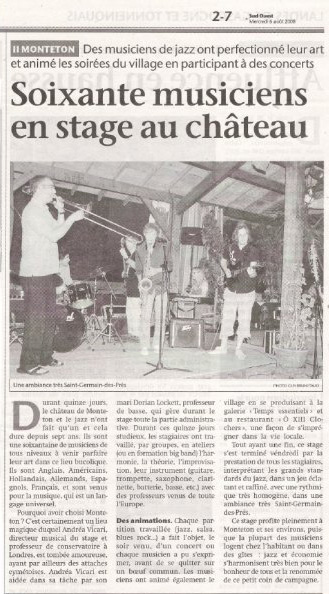About a year and a half ago, in the winter of 2004-5, I did a web search for "jazz summer school" and up came
the Dordogne jazz summer school, run by English musicians in
a dilapidated medieval castle in a hamlet called Monteton in
the rural countryside near Bergerac. It sounded very attractive,
and I had some correspondence with the director, but I didn't
manage to get well enough organized to sign up that winter.
The following year I resolved to do it, and by December I had
reserved a place. I made plane reservations in the early spring
and even thought ahead to reserve a hotel room in Bordeaux for
the days before and after the jazz school. As I geared up mentally
and musically for a week of jazz, the war started here in Israel
– making me rather less enthusiastic for the pleasures of life,
including making music. I was a bit apprehensive and imagined the school would be populated
by ambitious, young, talented musicians, who would be too stuck
up to play with me, or, alternatively, with rank beginners from
whom I could not learn very much. However, I assumed that I
would be playing a lot, and that would be valuable.
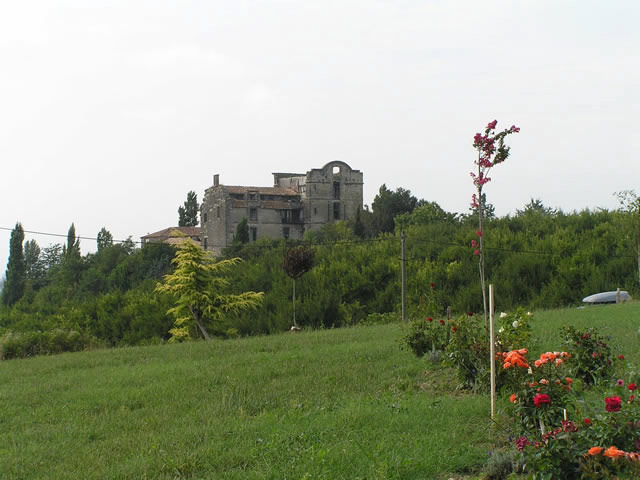
The trip there was not fun. My flight left Ben-Gurion airport
after midnight on Sunday, July 30 and, I arrived in Charles
De Gaulle airport with an hour or so to get to the Air France
window and get a boarding pass for the connecting flight to
Bordeaux. The line was so long and slow moving that I almost
missed the plane. To top things off, when I got to Bordeaux,
I found that Air France had abandoned my suitcase in Paris.
My hotel in Bordeaux was very easy go get to from the airport,
and the people at the reception desk were pleasant. I had arrived
before check-in time, but my room was ready, and they had no
objection to my going in and resting for a while. Although I
was exhausted, after resting for a while, I went out and spent
a very pleasant day in Bordeaux, which is an impressive city,
full of grand eighteenth century buildings, next to a very wide
river, but with a historic center small enough to walk around
easily. Since it was Sunday in the holiday season, there were
very few people in the streets.
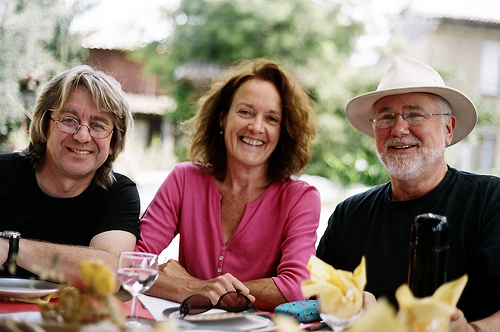
As promised, my suitcase was brought to the hotel in the late
afternoon. The people at the hotel said it happened all the
time. On Monday morning I packed and then took the long walk
from my hotel to the railroad station, because I love wandering
around towns, and bought a ticket for the 13:35 train to Bergerac.
I slowly made my way back to the hotel and checked out at about
eleven. There is a tramway that goes directly from where my
hotel was, a big park with the strange name of Quinconces, to
the railroad station.
I have since discovered that "quinconce" refers
to an arrangement like the five on a die or a domino: a square
with four dots in the corners and one in the center, which
is the way the trees are planted in that park. I had a cup
of coffee, got on the tram, and had time to eat a salade niçoise
in a decent restaurant across form the station (and to have
my first of many glasses of red wine) before my train left.
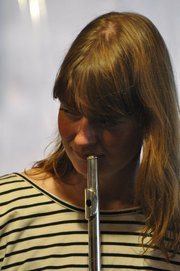
The train to Bergerac goes through wine country, past places like St. Emilion known for their vintages. Upon arrival in
Bergerac, I followed instructions and crossed the street to
a café to wait to be picked up by Simon, the jazz summer school
driver and trouble-shooter, an English expat who seems to
enjoy life. At the café a tall, balding young man saw that
I was carrying a sax case and figured out that I was also
headed for the school. His name was Christophe, he's a pianist,
and he works half-time in computers and half-time as a volunteer
political activist for a small socialist party in Paris. It
turned out he was our token Frenchman in the course, though
we had a French-speaking Swiss engineer as well.Christophe and I had a beer together, and he called Simon
on his cell phone once he figured out the number from the way
it was printed out on the email I had received – my Hebrew oriented
computer had reversed the order of the numbers. The drive to
Monteton was unexpectedly long, partially because we stopped
at the the small local airport to pick up Mike, another pianist,
but Simon was entertaining, as was Christophe.
I was still uncertain how things would turn
out musically. We pulled into the castle and took out
our luggage, but our rooms weren't ready yet, and we didn't
know whom we'd be rooming with. In fact, no one in charge seemed to be around to deal with us.(*proof that this post hasn't
been censored - Ed*)
We hung around and chatted, about twenty
of us, in a pleasant area between a dilapidated stone tower,
a terrace with tables set up for dinner, and a low, nondescript
building. After a while, some people gathered at the bandstand
and started jamming. There was a British bass player named Rick,
with a thatch of graying blond hair, and a drummer. Christophe
sat down at the keyboard, and I took out my alto. What the hell,
I said to myself, why be bashful? After all, I had paid the
airfare and tuition to play. I can't remember what tunes we
played, but we hit it off fairly well. Other people took out
their horns, and we kept going for quite a while. When you think
about it, which I have done a lot, it's rather amazing that
people who have never met can start making music almost immediately.
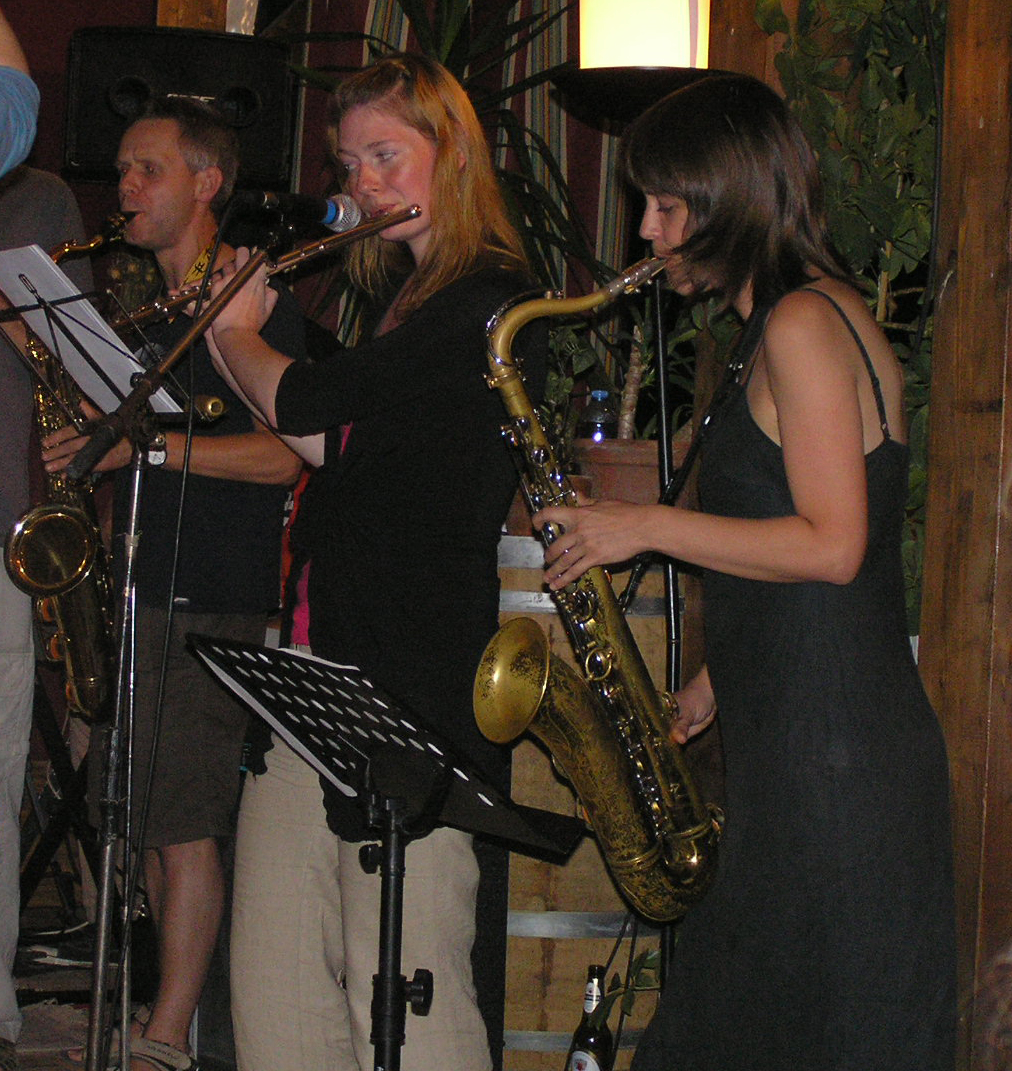
Dorian Lockett, a bass player who, with his wife, Andrea Vicari,
a pianist, run the jazz summer school eventually showed up,
and we were gradually settled in our rooms. Andrea's parents
have a house nearby, and their two children stayed with their
grandparents. Her brother Scott, a drummer, was also around
helping out and playing. Dorian more or less takes care of the
administrative stuff, and Andrea is in charge of the jazz summer
schoolmusical program. I was placed with two other guys in a long,
narrow, extremely basic room, with an adjoining bathroom that
was even more basic. I'm not complaining. The beds were clean
and comfortable, there was hot water for showers, and my roommates
were considerate. I had registered as a vegetarian to avoid
problems with kashrut, and at dinner that was no problem – nor
was it ever. The restaurant staff was extremely thoughtful and
friendly. The food was generally fine, never very ambitious,
but always satisfying, with plenty of salad, as much wine as
you could drink at lunch and supper, and fresh bread home baked
from organic whole wheat flour. They served great cheese after
every meal, of course. There was also a bar where you could
buy coffee, soft-drinks, beer, wine, or whiskey.
Look how far I've gotten, and I've barely begun to describe
the musical activities. Dorian sent us a .pdf file before
the school began, with the schedule, which I printed out
and looked at, but it didn't really mean much to me. On
Tuesday morning we started off in earnest, and I began
to see how much care had been put into planning things.
We were placed in two different groups, which met at different
times, of course. One was known as a workshop group –
each one had about a quarter of the forty participants,
selected by instrument. My group, in memory of the confusion
of the first evening, was known as the Bed-Hunters. (Another group was known as the Jazz Worriers –
to give you an idea of the humor of the place.) Each workshop
group met for two hours or so every morning and prepared a piece
for performance that evening. We also had three slightly larger
ensembles, a Mingus group, a Soul group, and a Salsa group (which
I chose, because I'm pretty weak on Latin rhythms). Those groups
prepared performances for the final evening of the school, except
for the Salsa group. We played three pieces for dancing at a
Salsa evening on Friday. We also had instrumental sessions with
the teachers, master-classes, and improvisation lessons. sWe had classes from ten to one and then from four to six, and
organized jam sessions and performances till eight, when we
had supper. After supper sometimes our teachers played for us,
once a French group that was sharing the facilities with us
gave a concert, and so on. There were disorganized jam sessions
until the wee hours of the morning. I stayed up till one-thirty
or so one night, but I didn't get much out of that part of the
program.
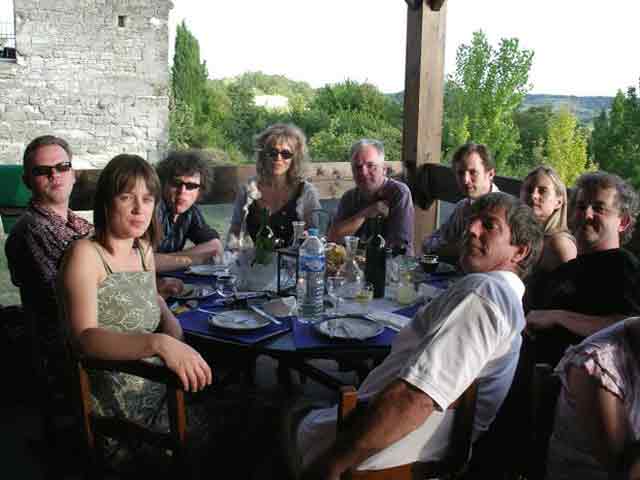
The jazz summer school had four main teachers: two saxophone
players, Julian Siegel and Ingrid Laubrock; one trumpeter, Chris
Batchelor; and one guitarist, Phil Robson. Andrea worked with
the pianists. They are all fine musicians and excellent teachers.
Chris was especially articulate, and, since he directed the
Salsa band, I was exposed to him a lot. Julian was the first
teacher I was exposed to, in a workshop for the advanced saxophone
players (it was up to us to decide what level was right for
us). He's a tall man with a soft face and a lot of black hair.
He speaks quietly, almost bashfully, and in his class he emphasized
sound production in the lower register of the horn: the most
basic stuff is also the most advanced. That afternoon he also
led my workshop group and taught us the song "Sweet Georgia
Bright" by ear, going over it patiently, phrase by phrase,
chord by chord, till we'd got it. Like all the other teachers,
he was terrifically encouraging, telling us we were doing great
all the time.
My biggest obstacle to improvising with assurance is my tendency
to get lost in the form (or my fear that I'll get lost). I tend
to compensate by gluing myself to the lead-sheet, using my eyes
instead of my ears, so it was very useful to me to learn something
strictly by ear, without the safety net of written music.
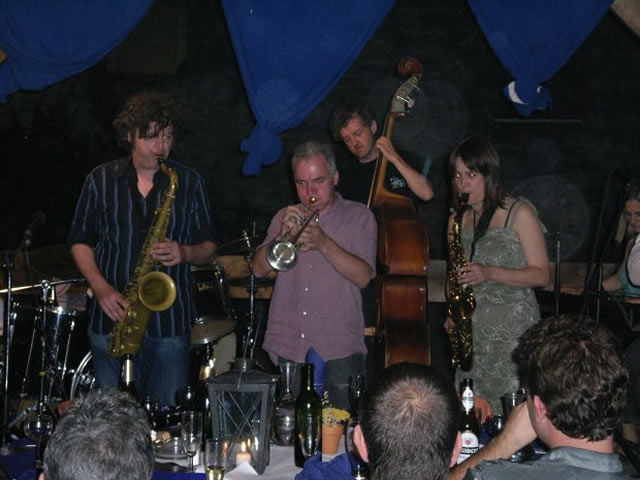
Chris Batchelor, a strong and imaginative trumpet player and
a very articulate teacher, addressed a lot of the musical issues
that concern me at the moment in a way that I could grasp immediately. He led our workshop group the next day and taught us a simple,
amusing New Orleans inspired Bill Frisell piece called "In
Deep," also by ear. He also gave a master class demonstration
that day, about breaking out of the patterns of jazz standards
by changing phrasing, by playing the chord progressions out
of phase, and other fairly technical matters. That mainly drove
home for me how firmly you have to have a piece in your mind,
in order to improvise against the structure and not confuse
yourself.
But I don't want to go on about the specific things I learned,
things that I want to work on and use now that I'm back home.
The main point is that by the end of the week, a lot of us were
sounding pretty good, playing confidently with a full tone,
and enjoying ourselves. People who had never met had formed
ensembles and were playing together nicely. Andrea and her brother
Scott supervised the early evening jam sessions and made certain
that no one got up on stage and monopolized the action, and
the atmosphere among us was uniformly generous. People always
applauded your solos, even if you got lost and sounded like
shit.
What may be surprising is that there are enough people like
me, mainly middle-aged amateurs, who are serious about our music
to populate a jazz summer school like this. The other thing,
of course, is that this was a demonstration that jazz has convincingly
become a world music – you don't have to be American or African-American
to love it or play it creditably. At our final concert, on Sunday
night, August 6, our performance groups played: the Mingus band,
the Salsa band, and the Soul band. The Mingus band started off
with "Better Get Hit in the Soul," a lively evocation
of black evangelical churches. There they were, about twelve
white Europeans playing the blackest of black music with enthusiastic
respect. And then another twelve northern Europeans played Cuban
music with love and abandon. I've always looked at my musical
activity, at least in one sense, as something that takes me
places – and indeed it has.
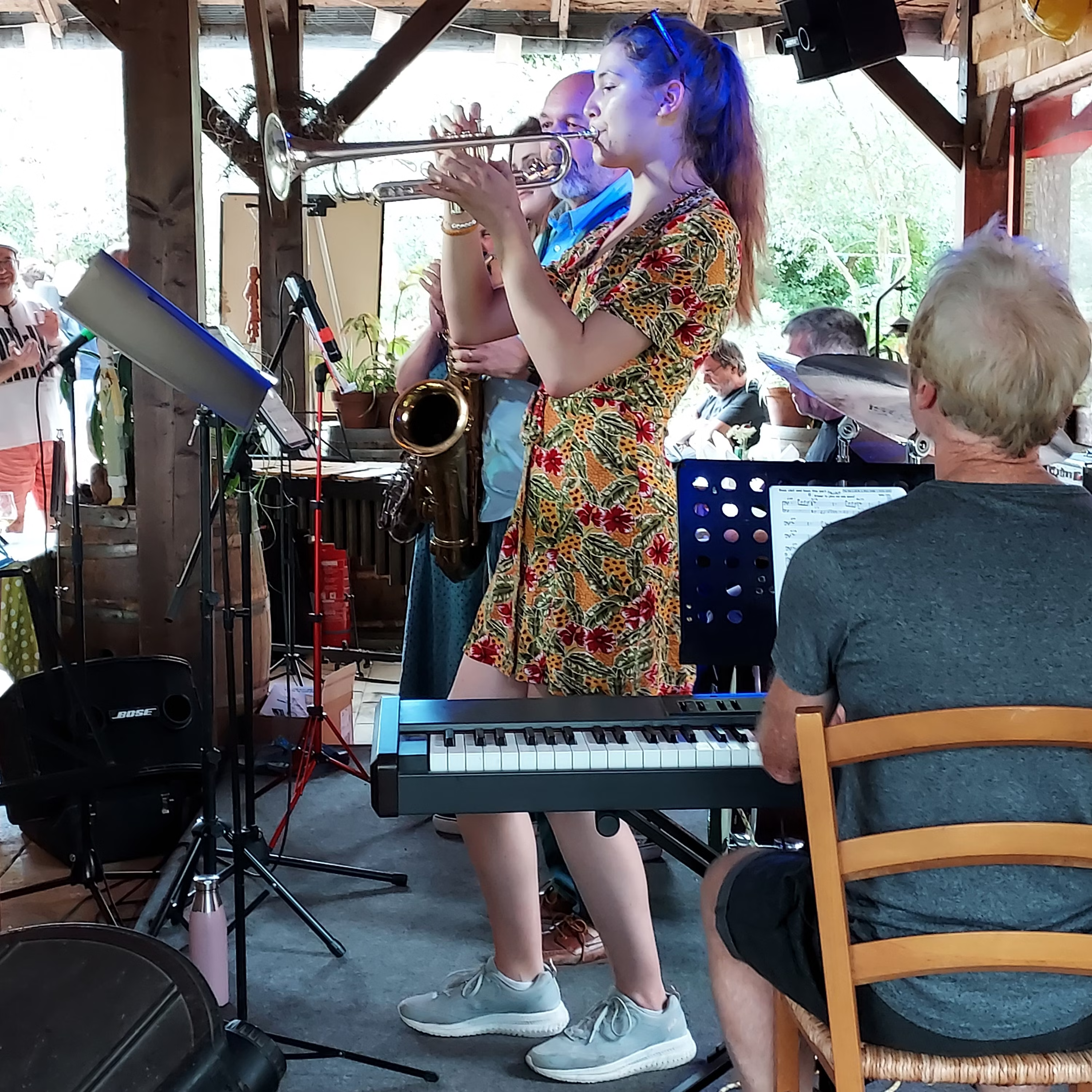
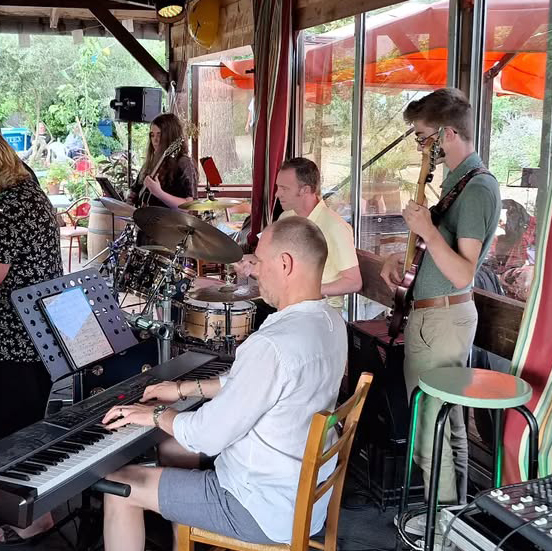
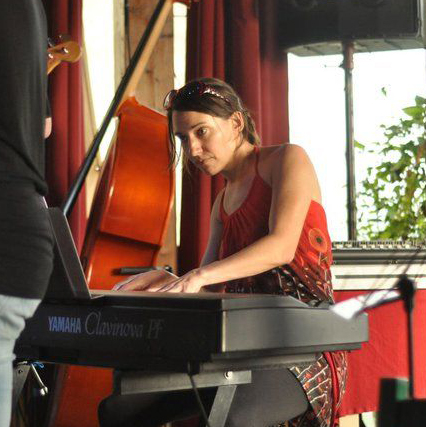
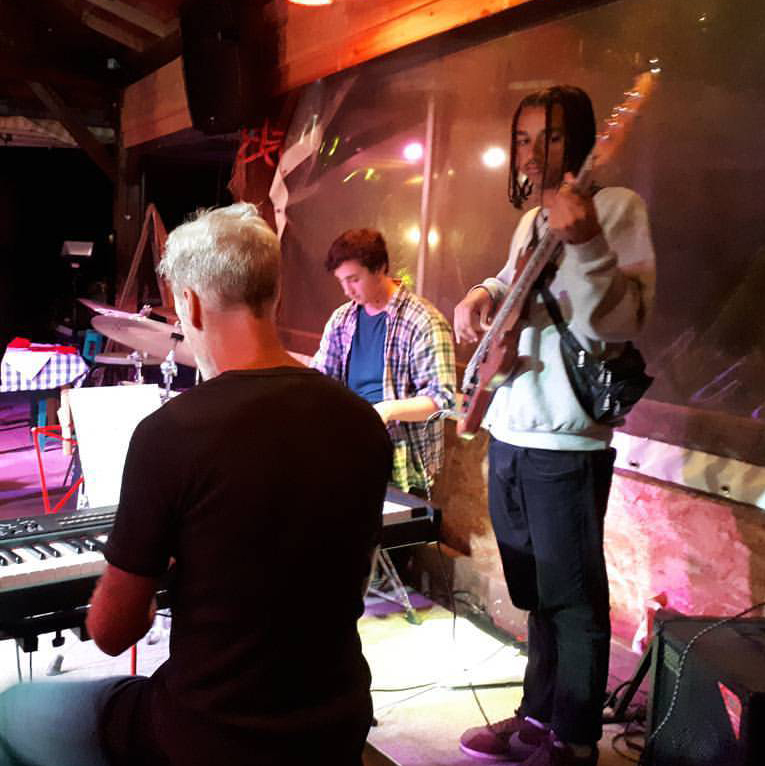
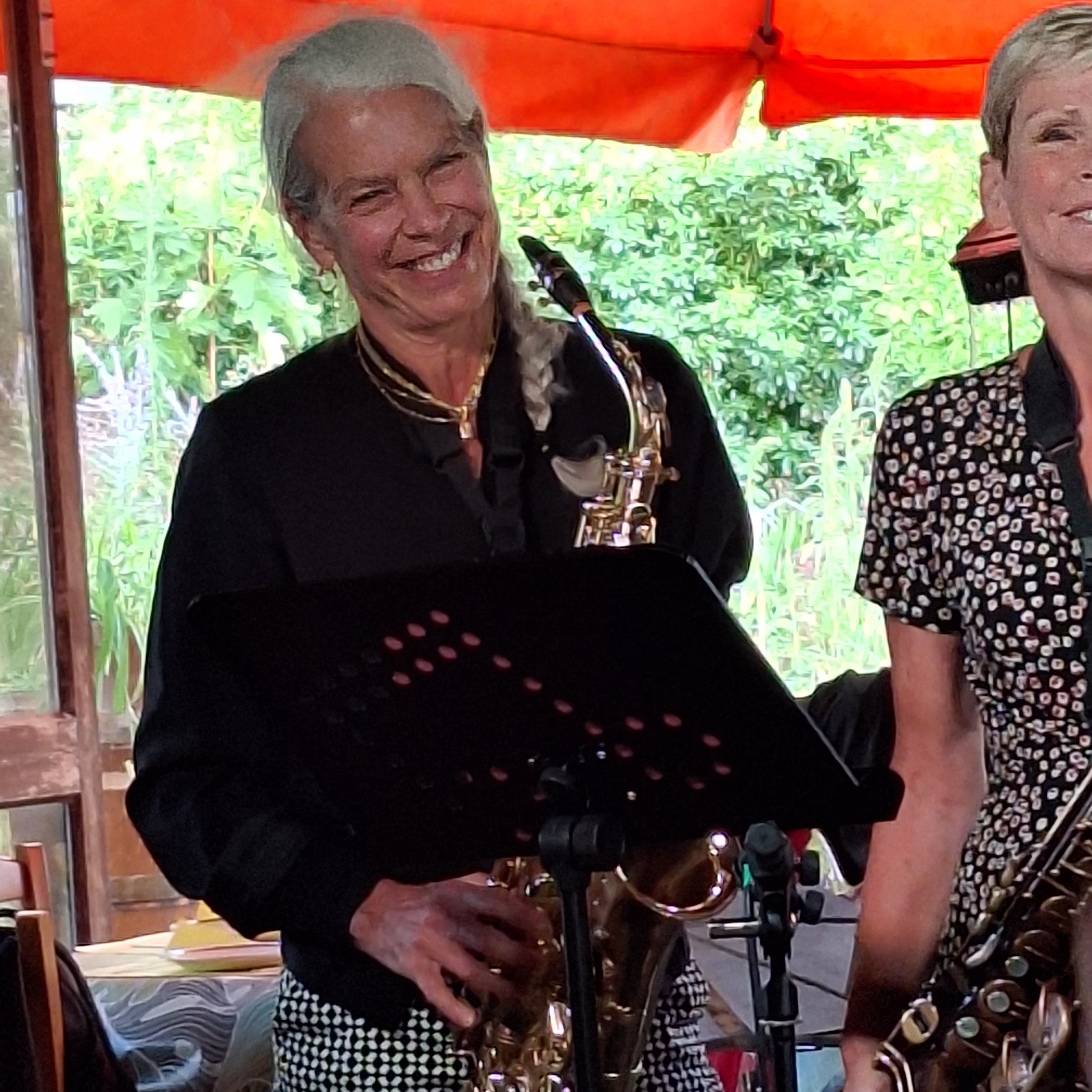
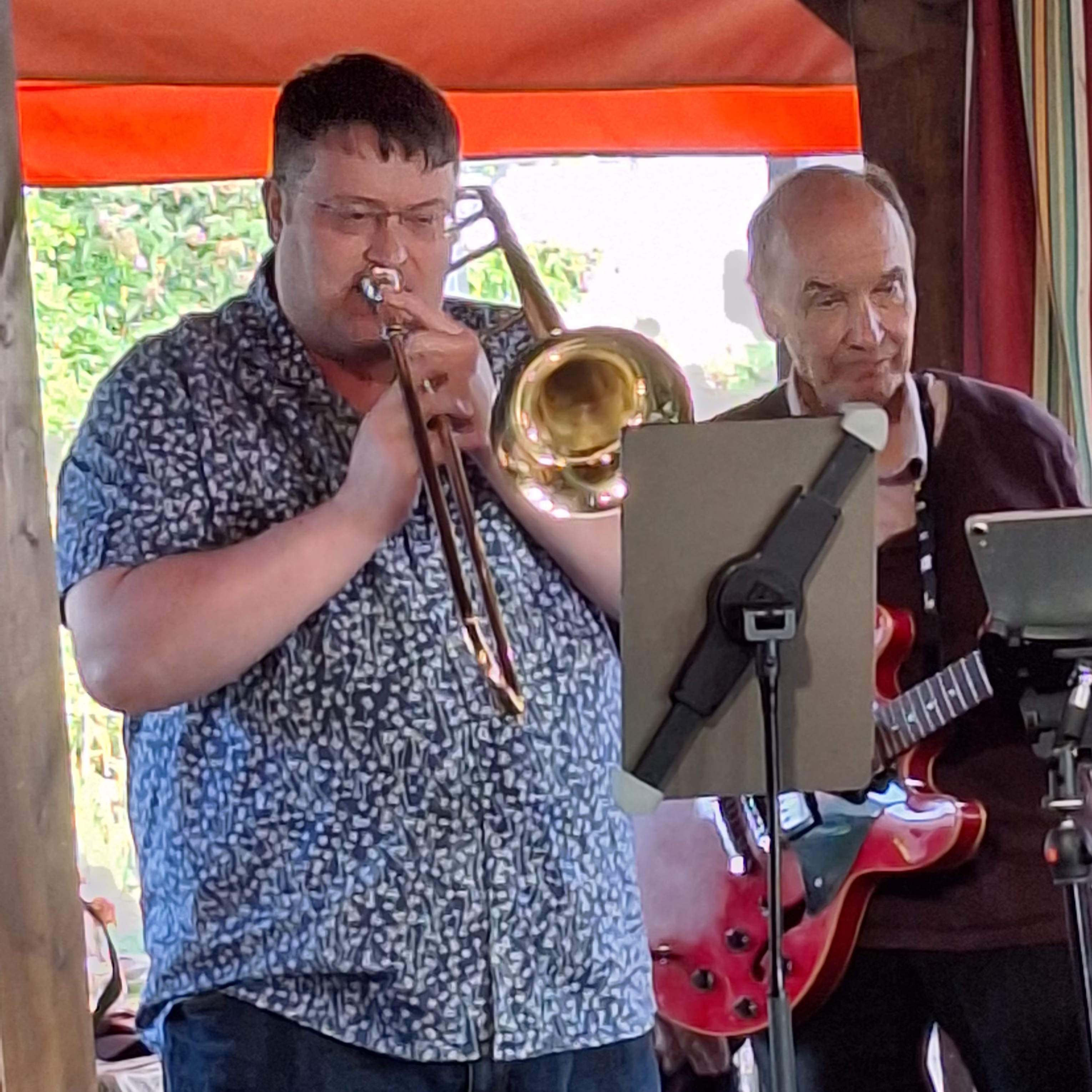
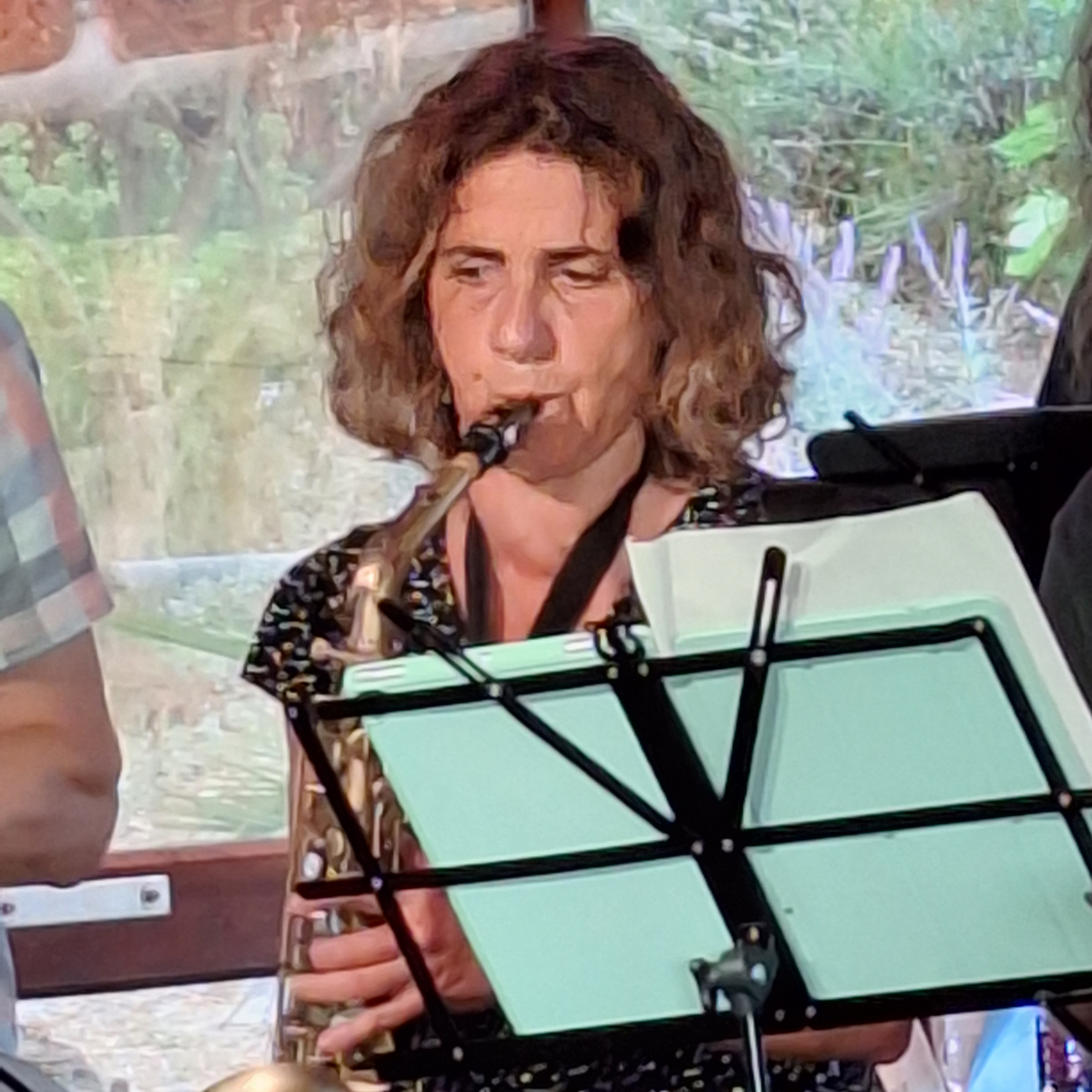
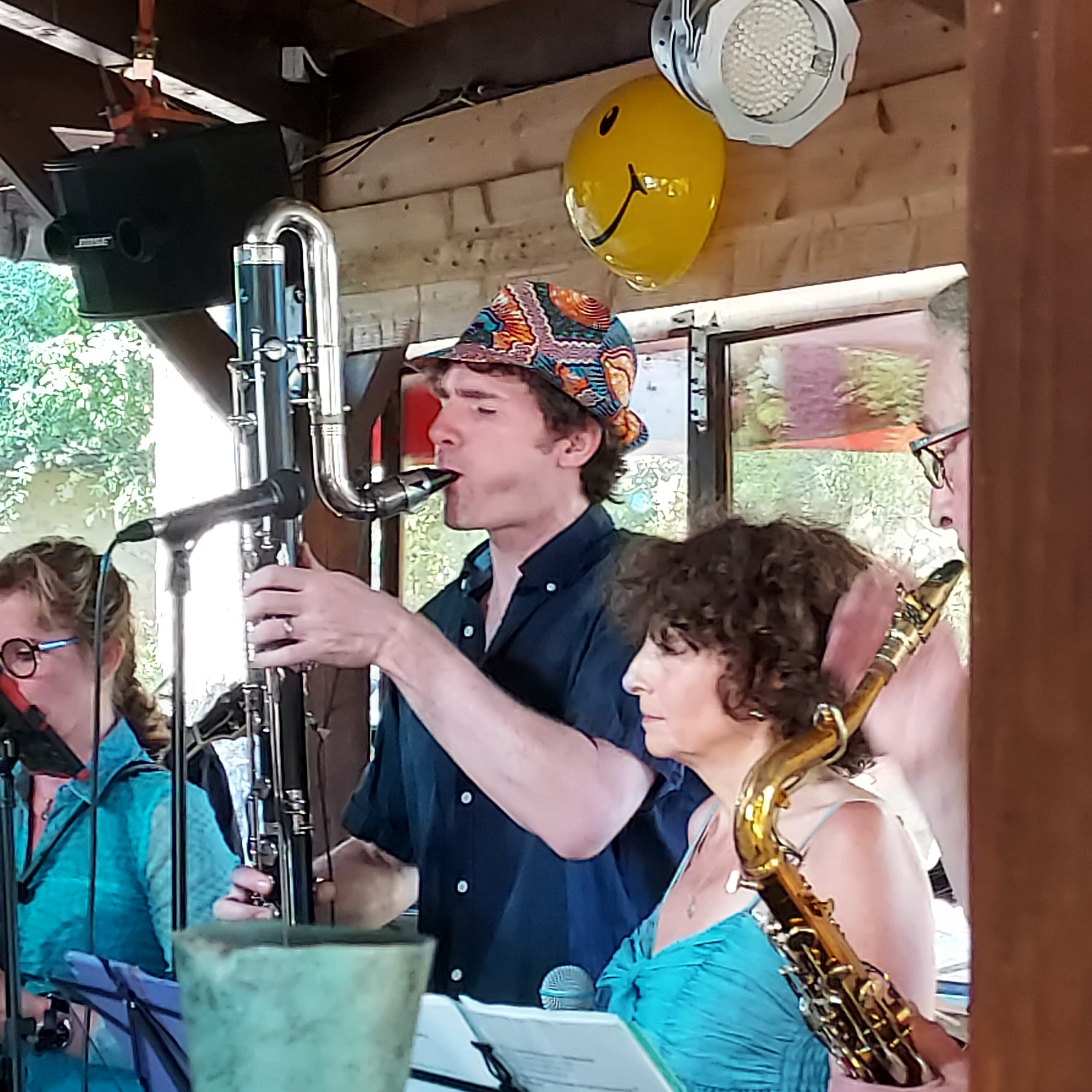
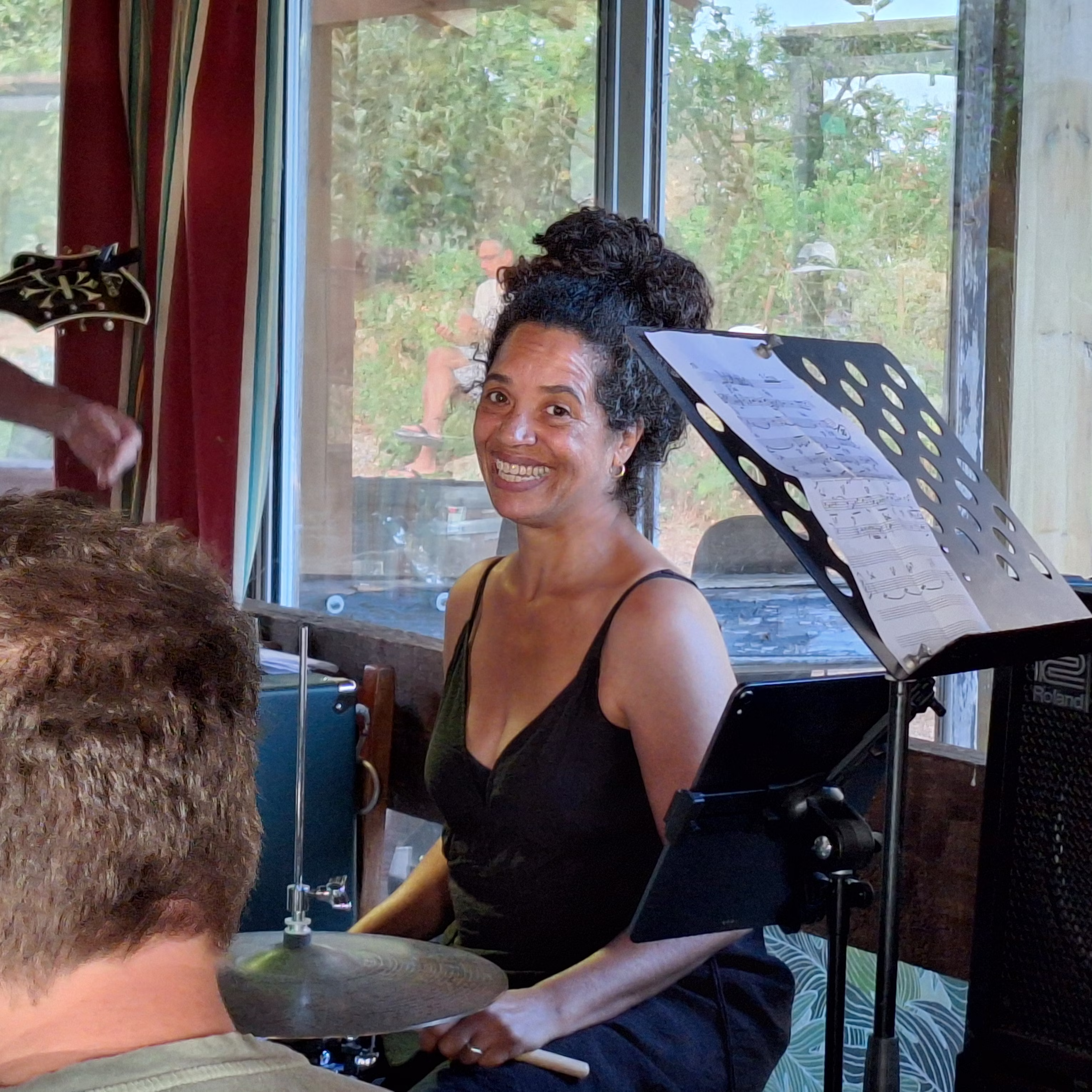
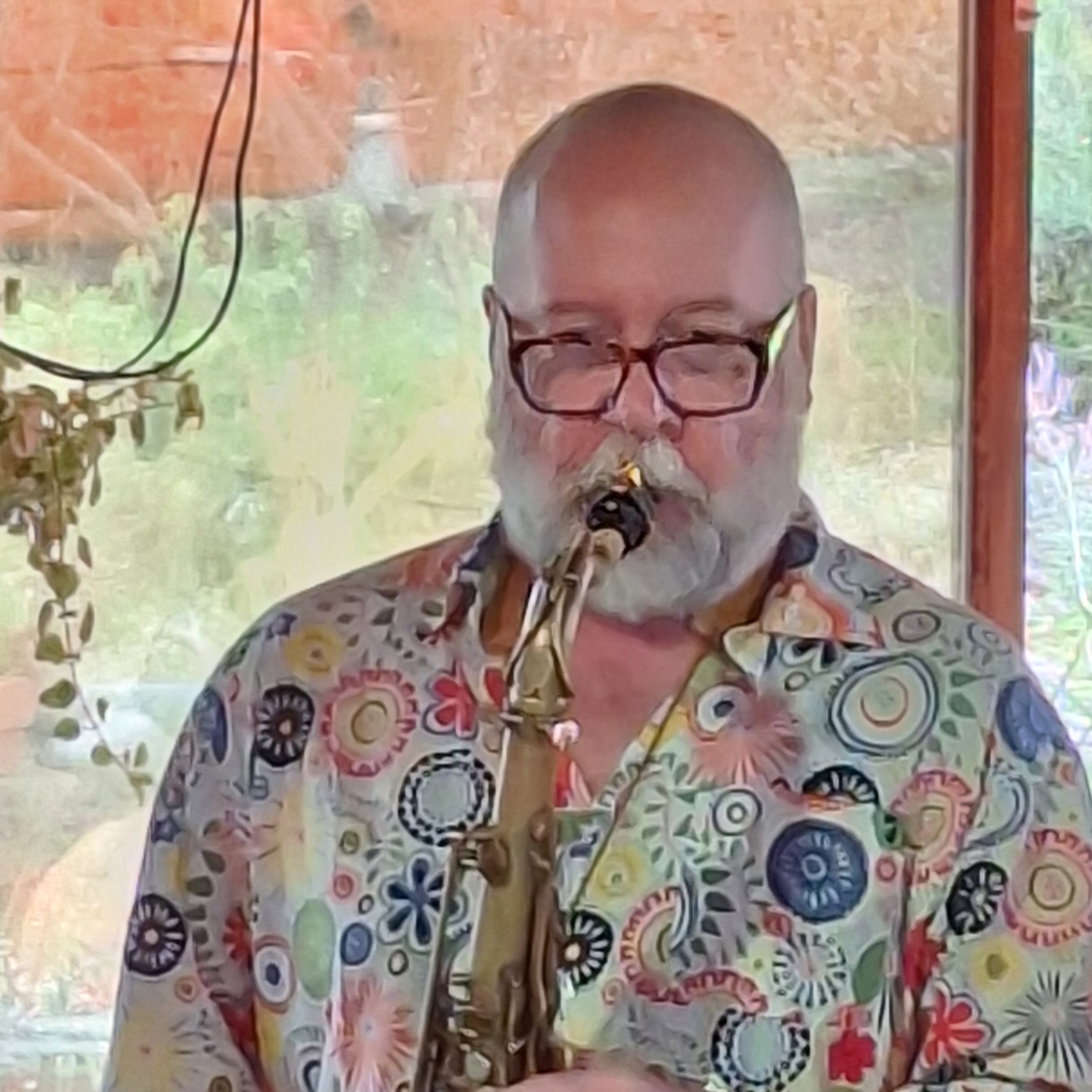
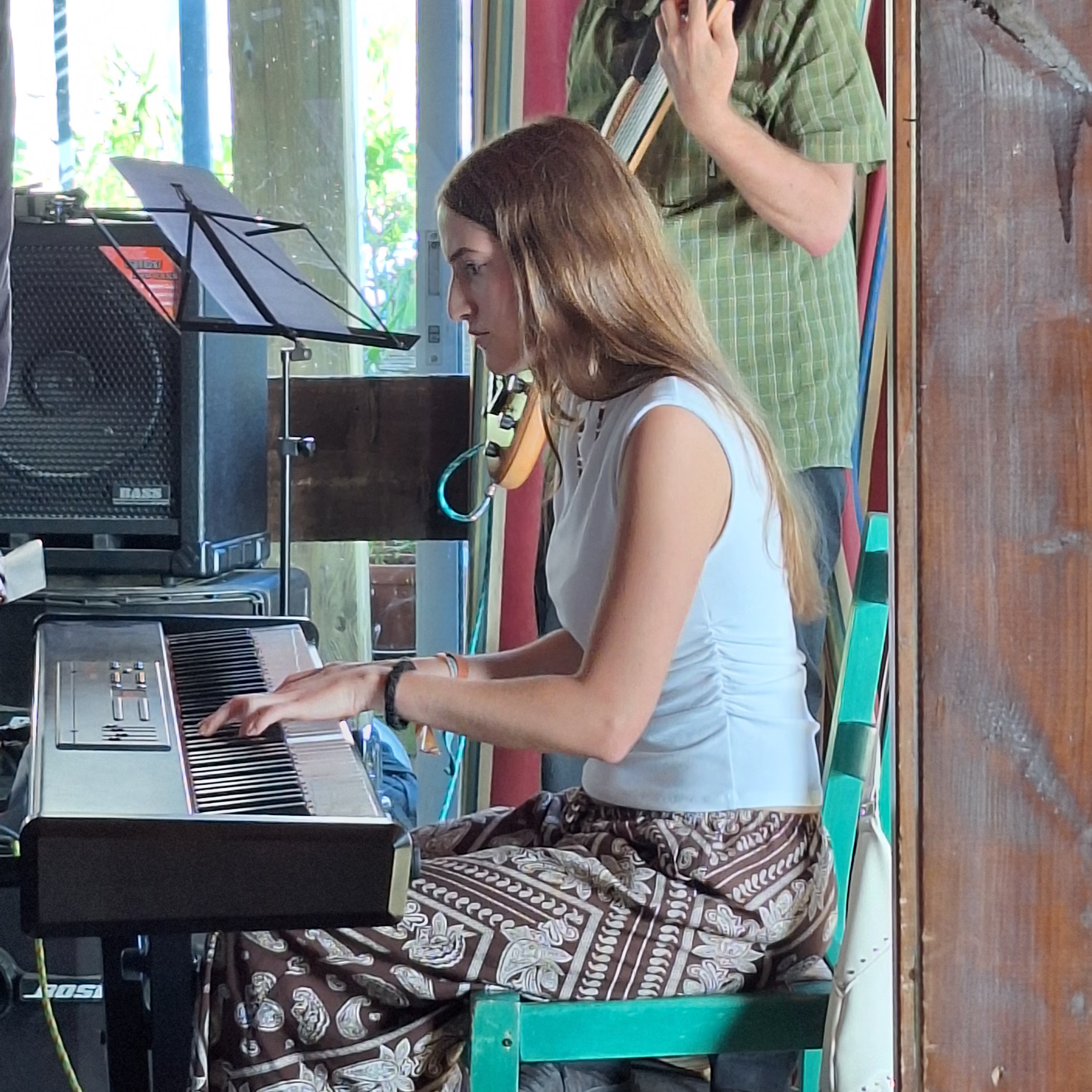
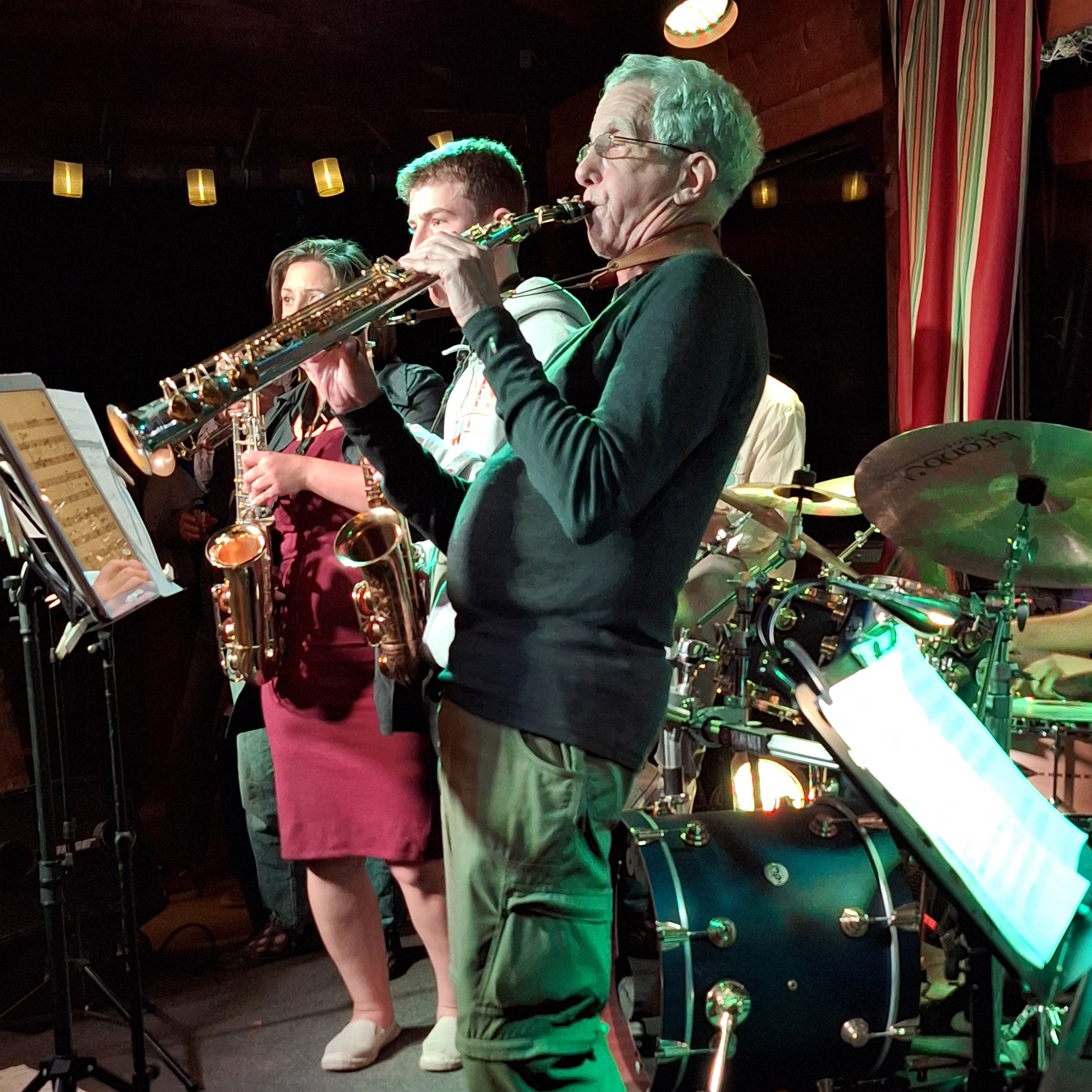
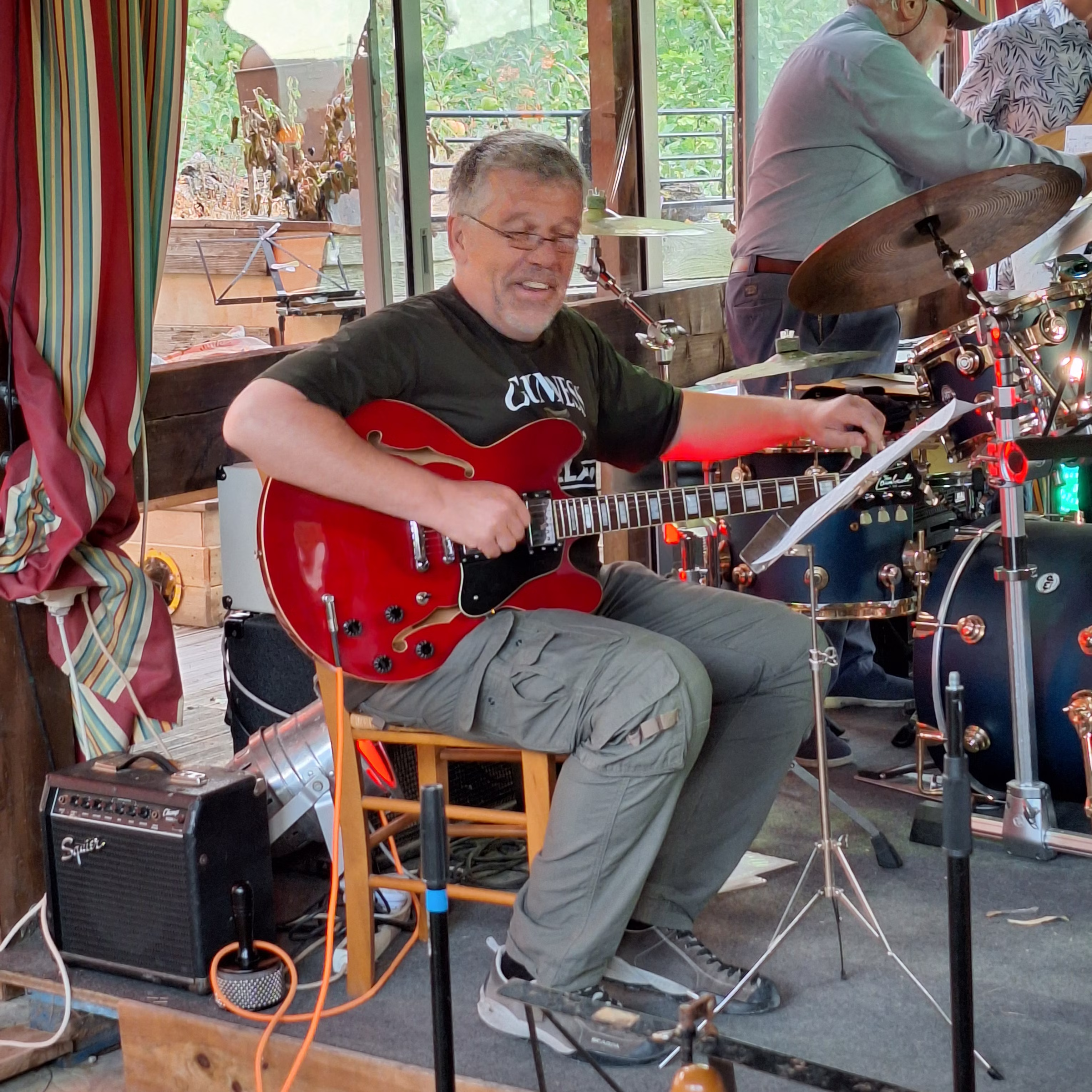
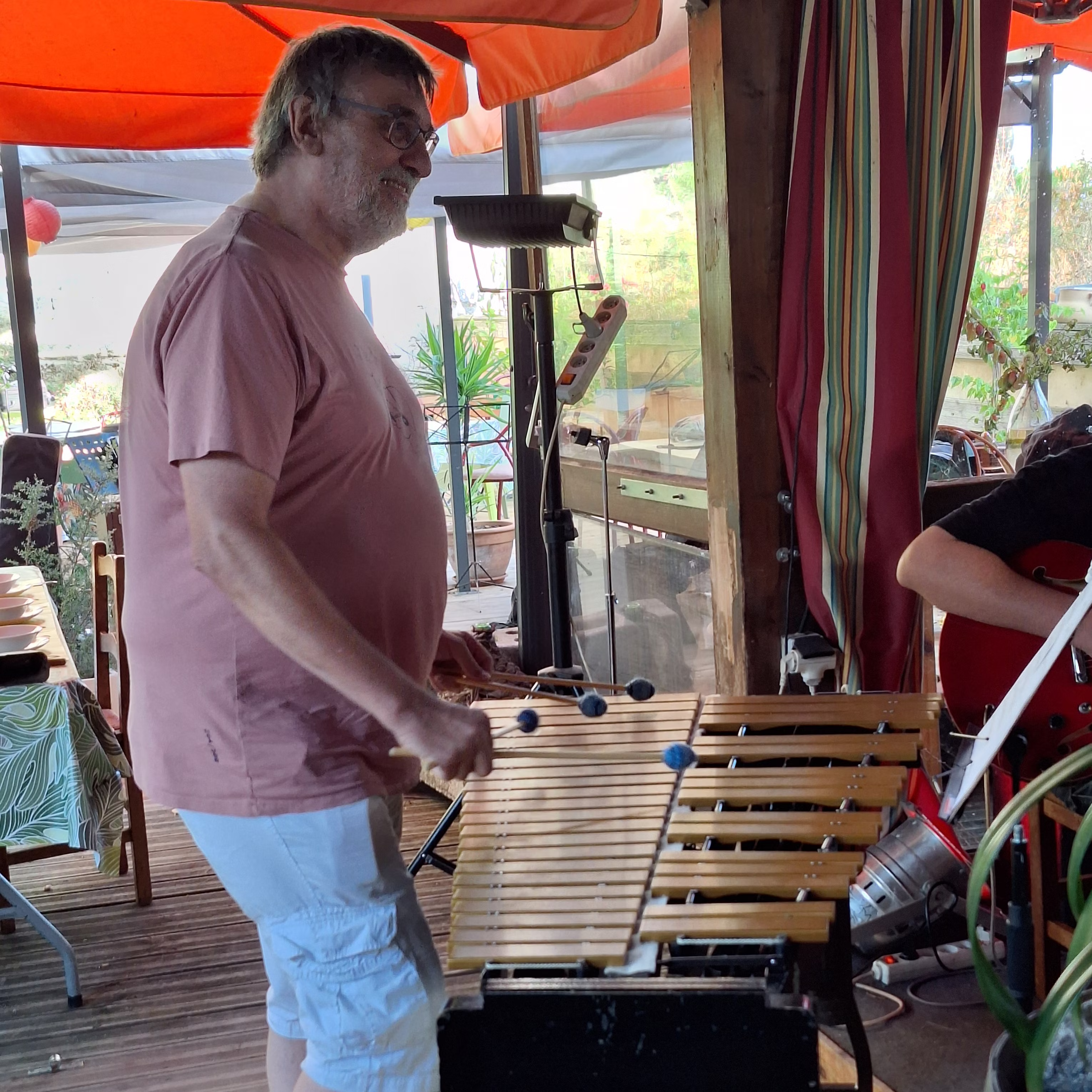
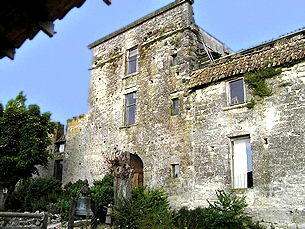
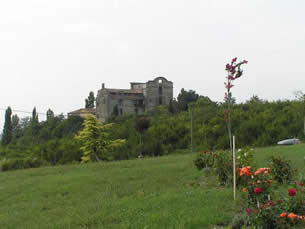
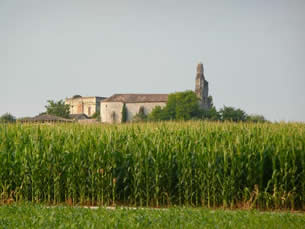
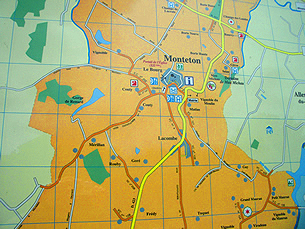
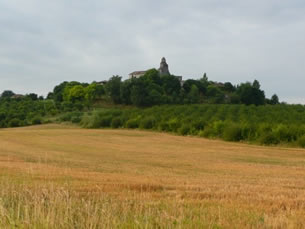
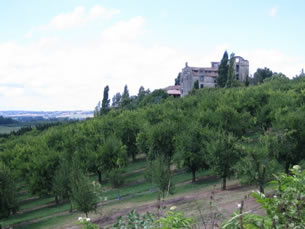
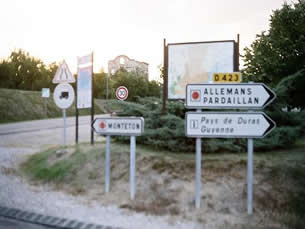
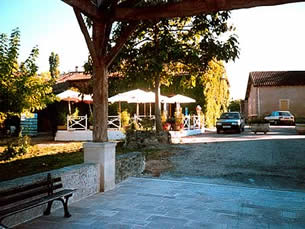
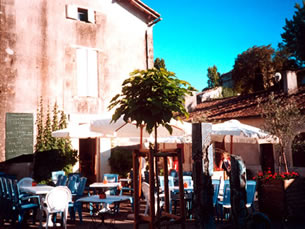
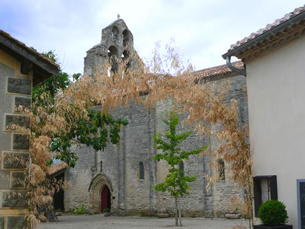
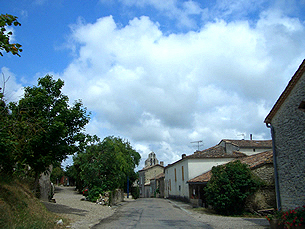
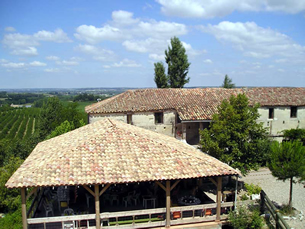
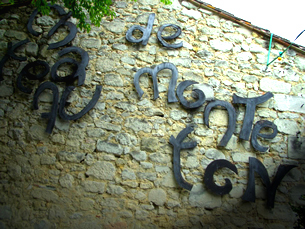
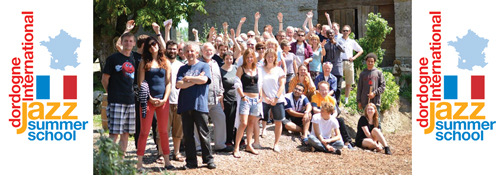
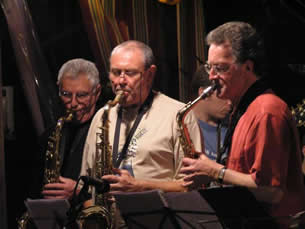
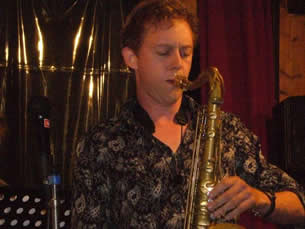
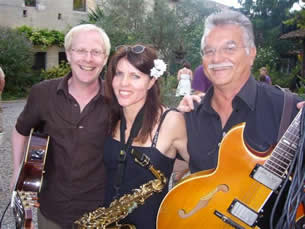
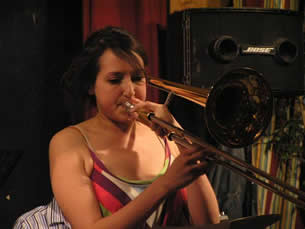
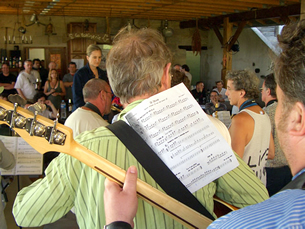
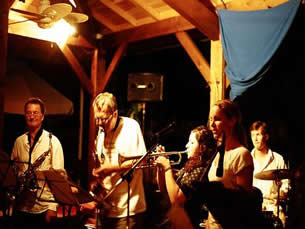
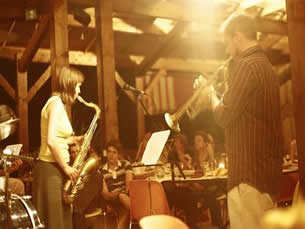
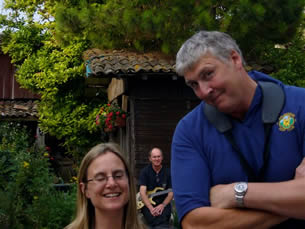
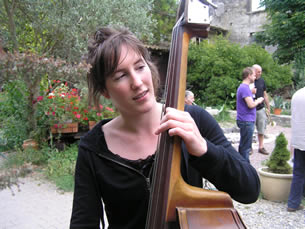
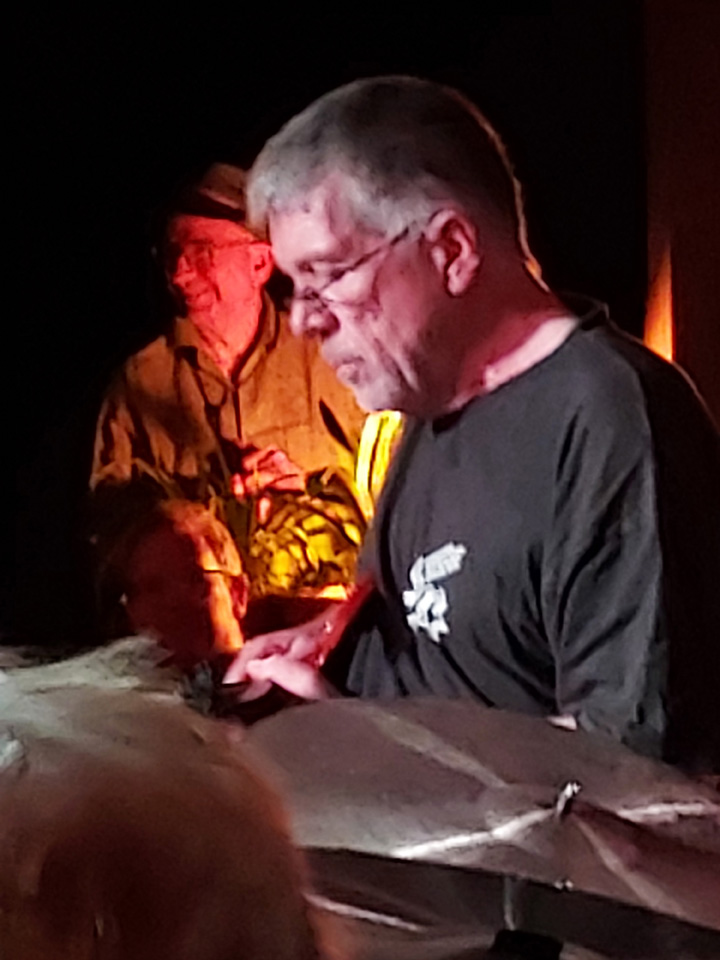
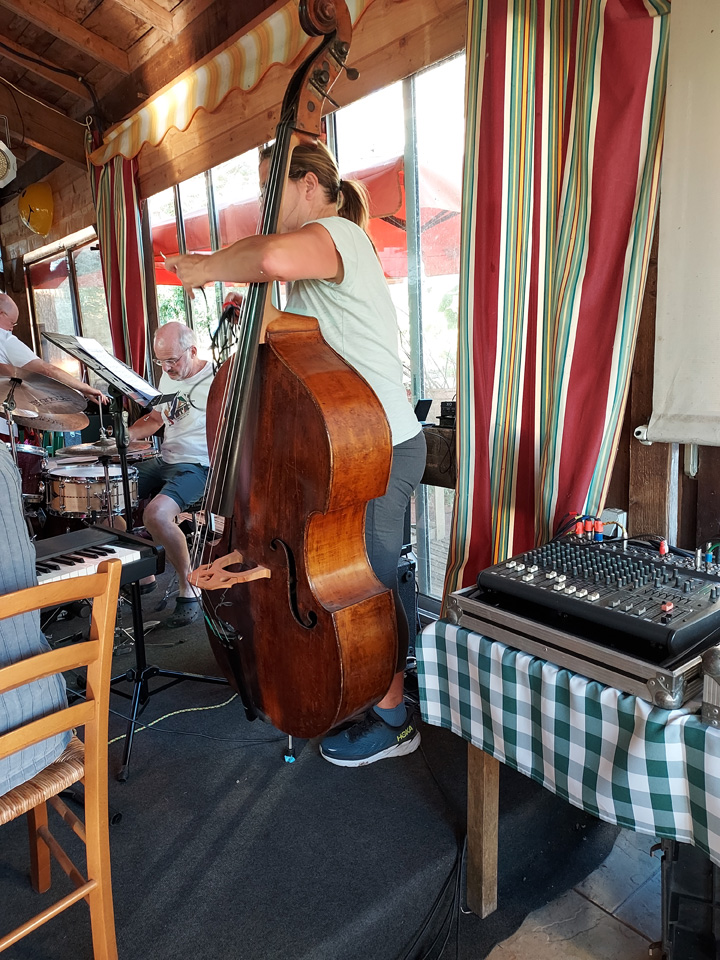
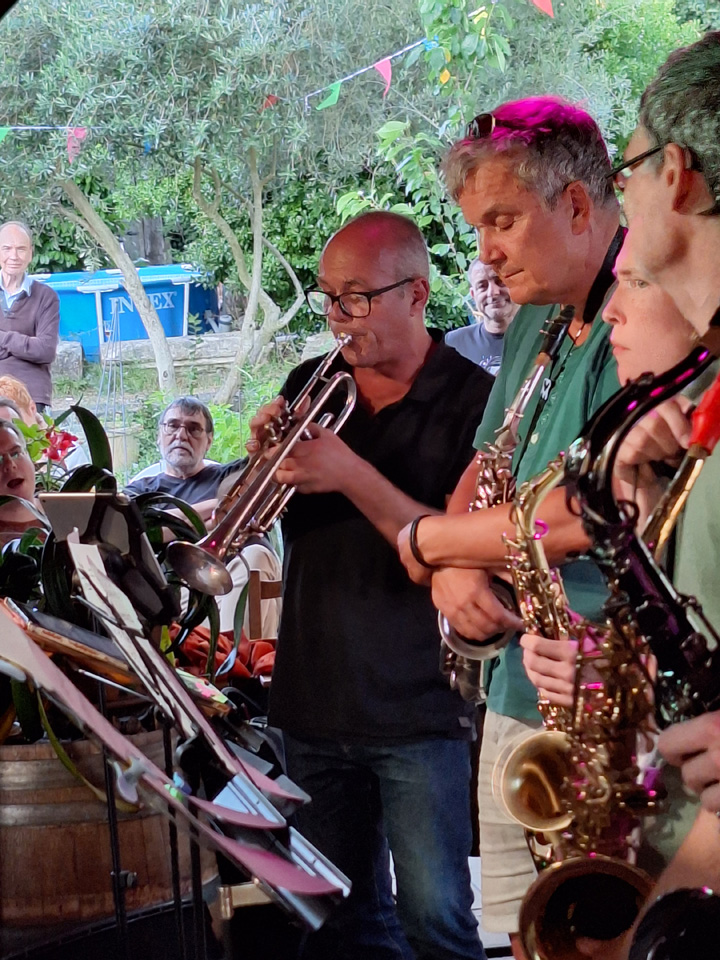
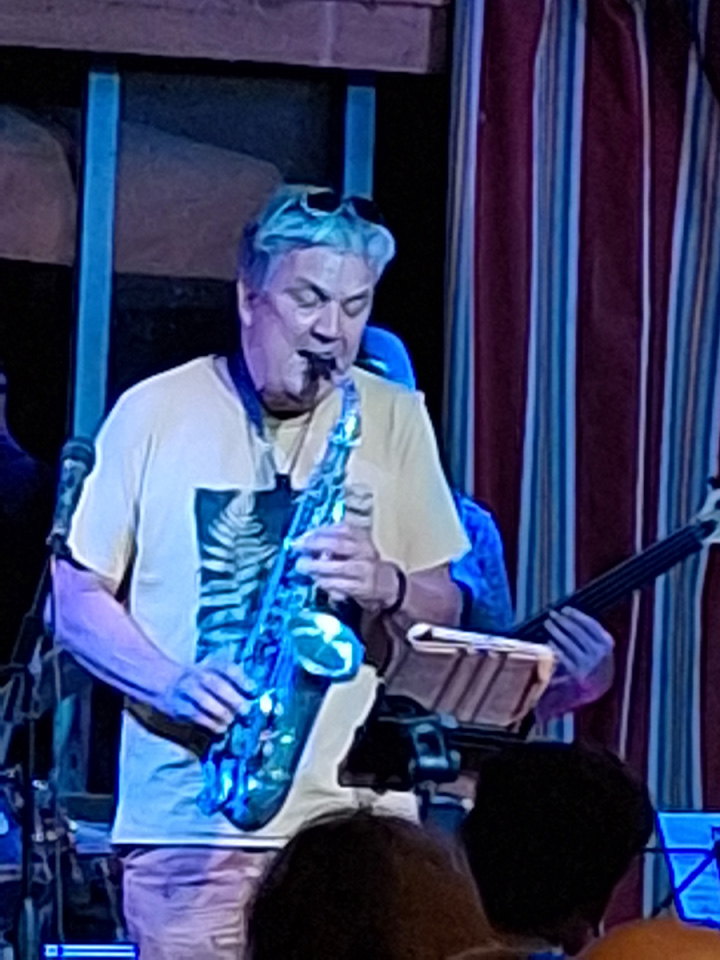
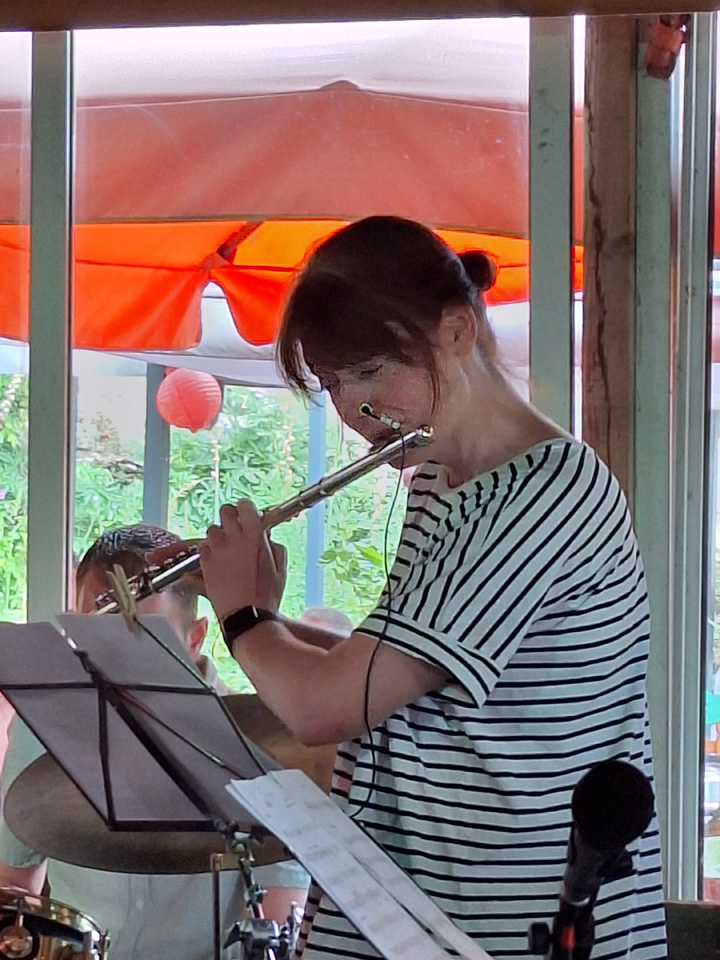
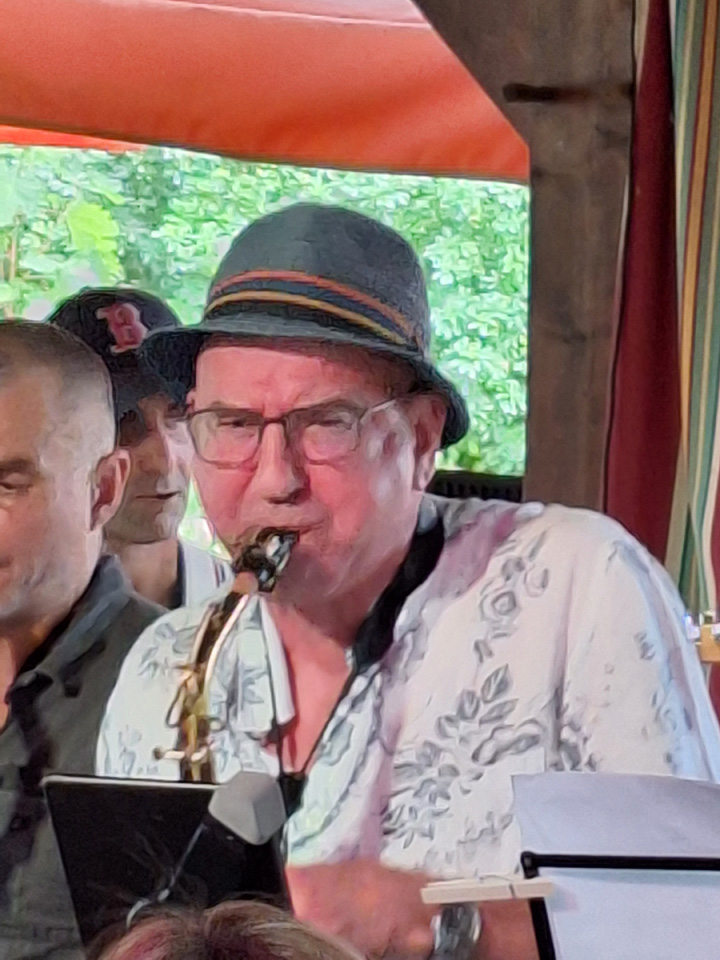
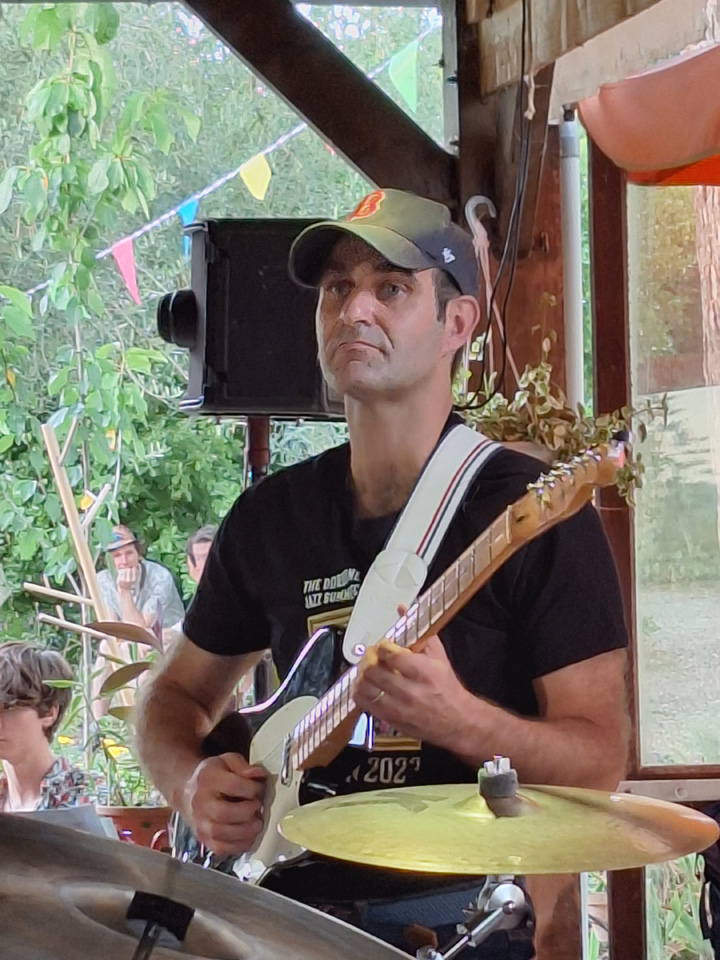
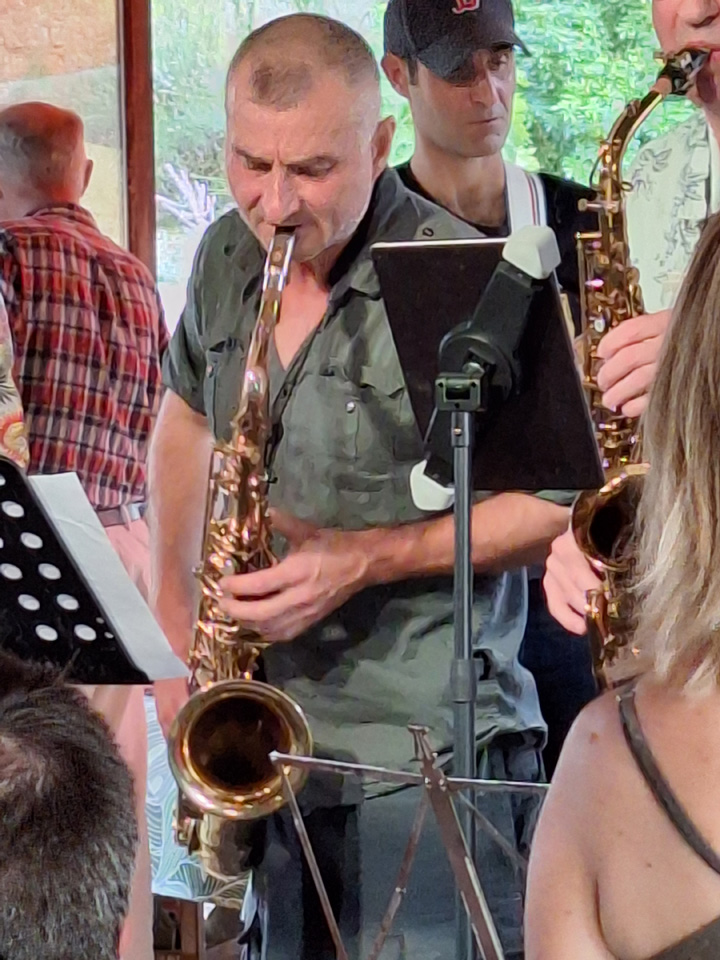
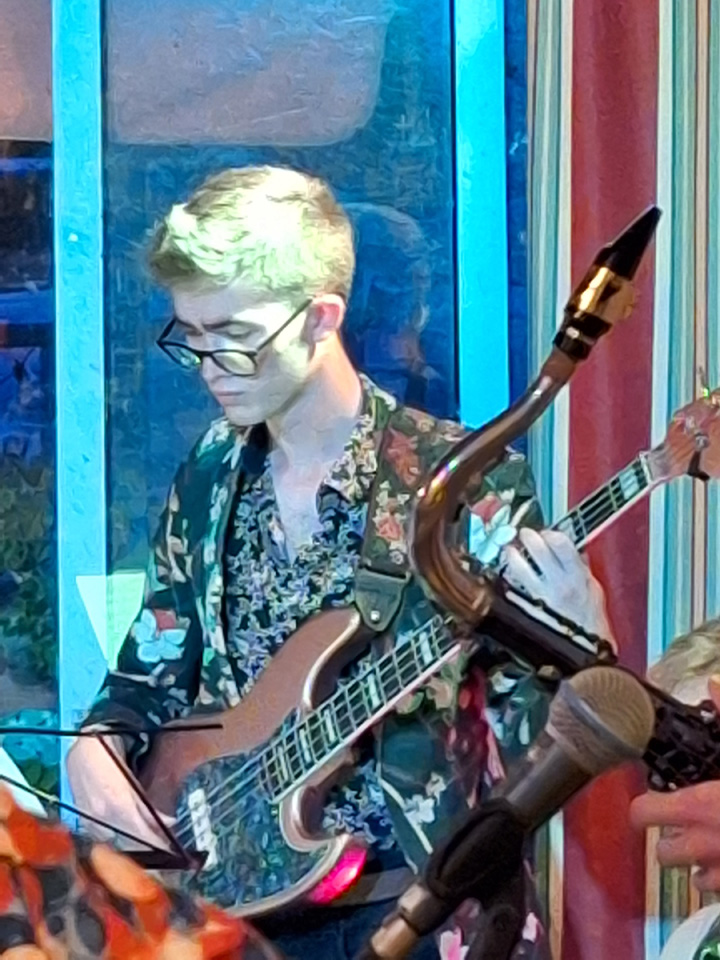
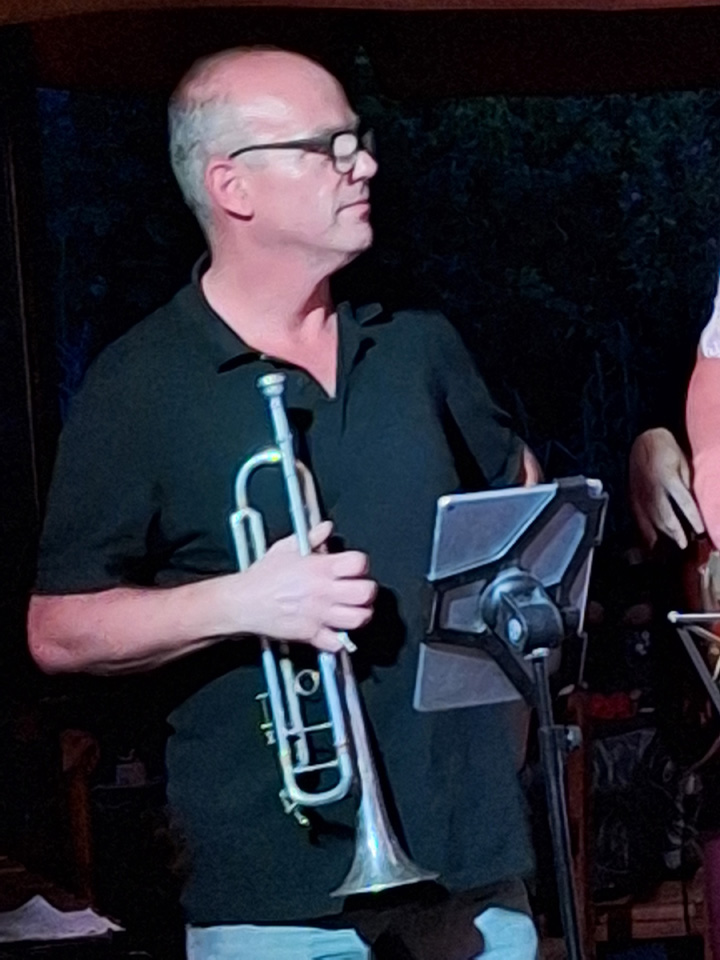
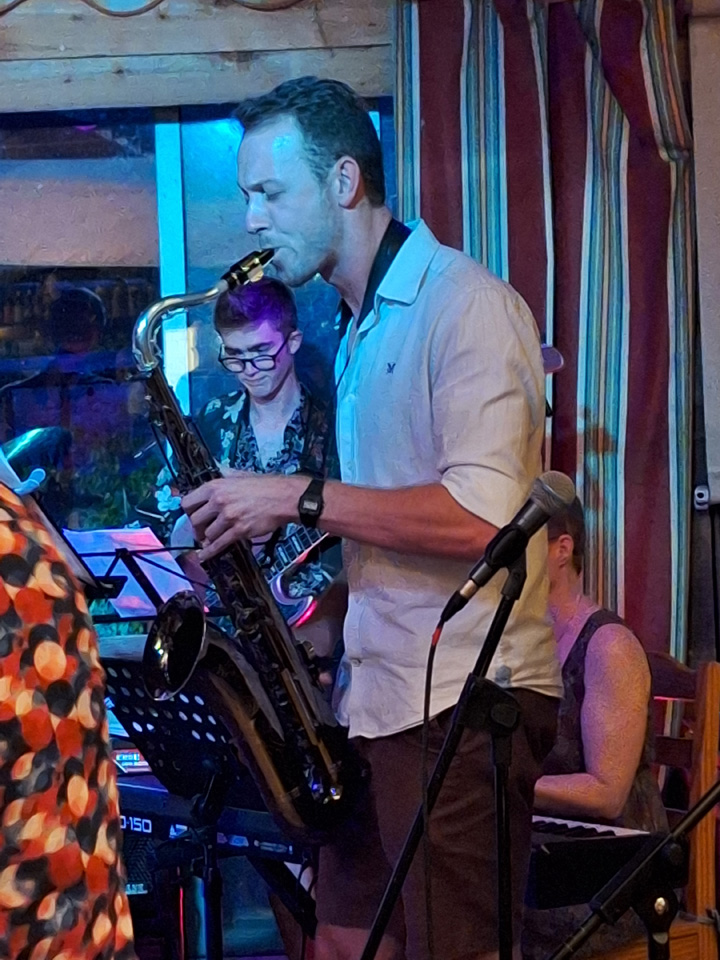
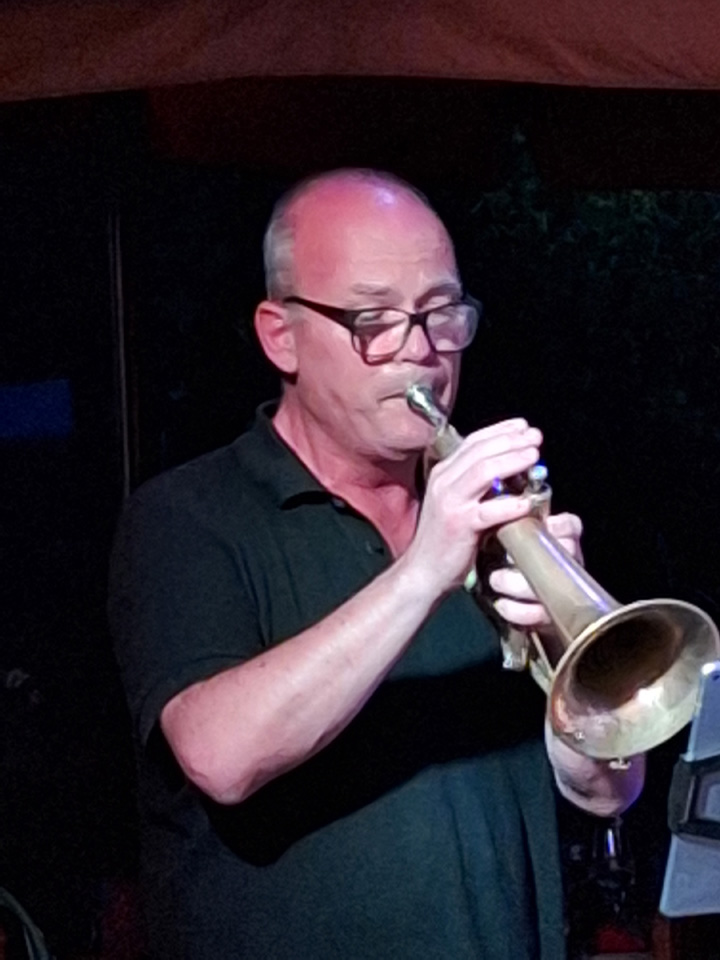
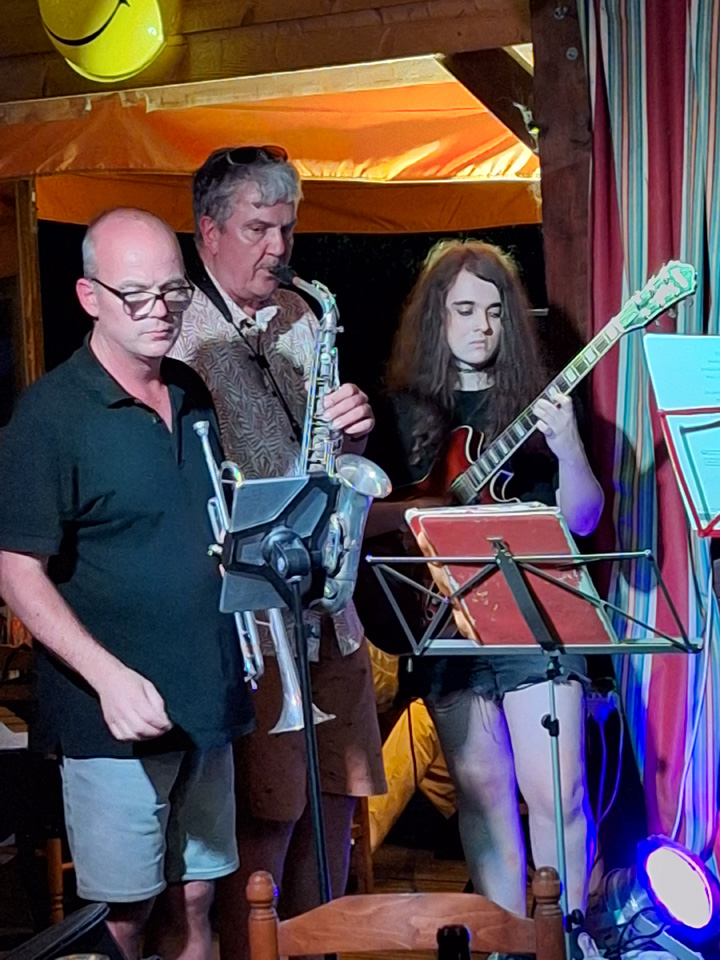
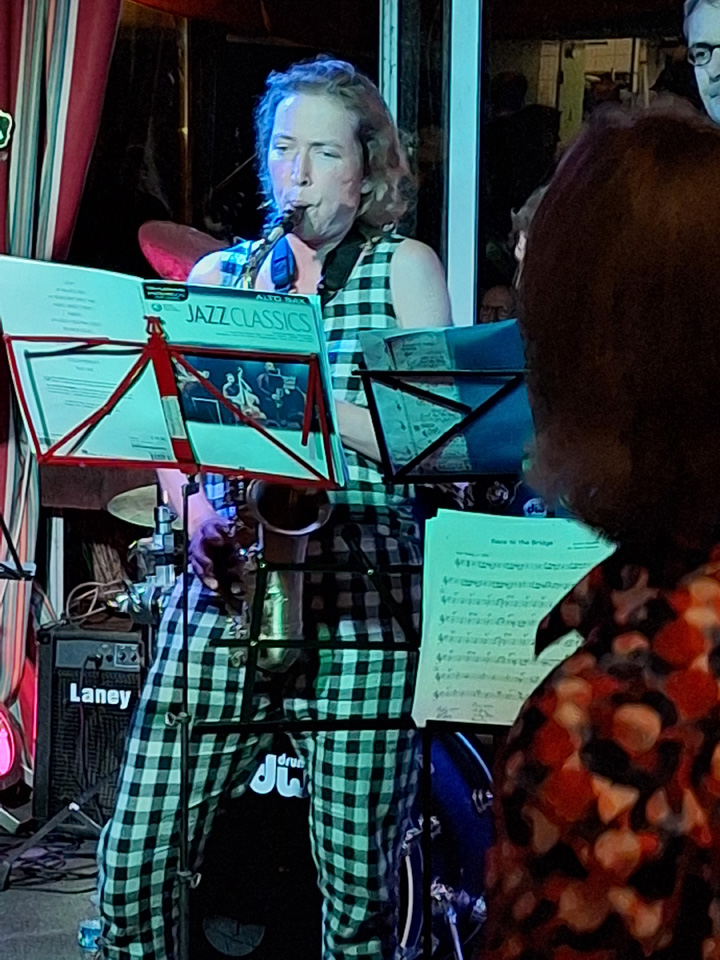
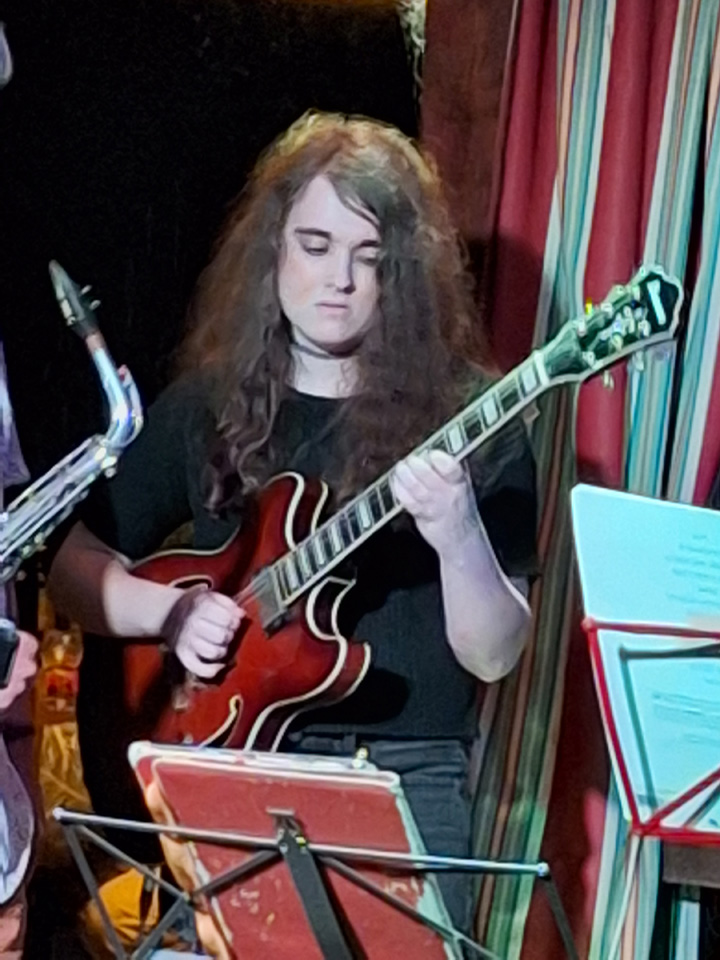
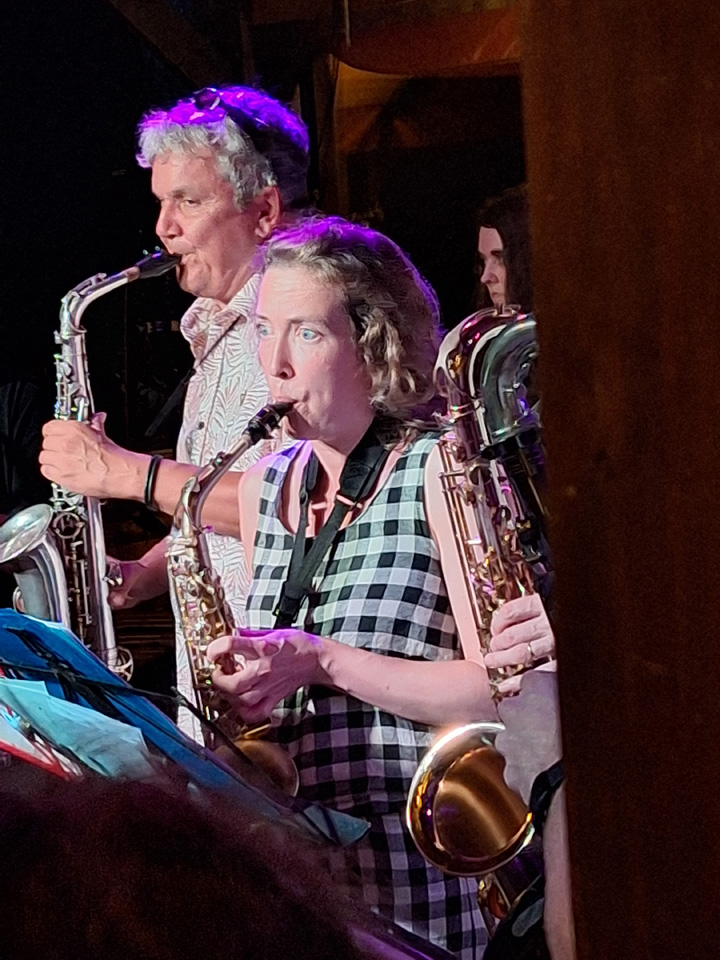
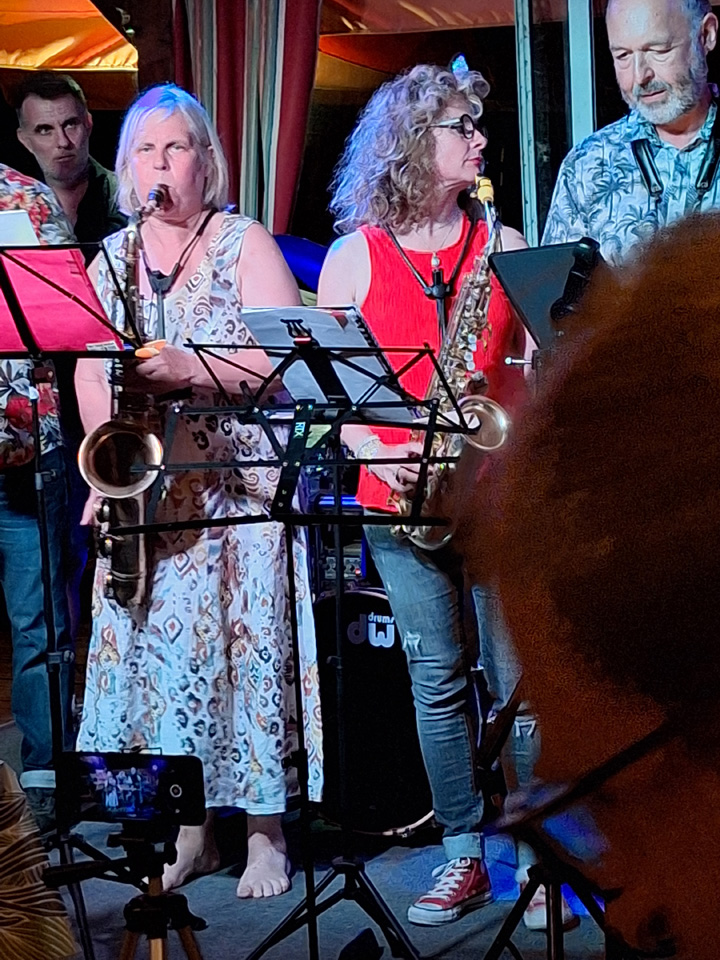
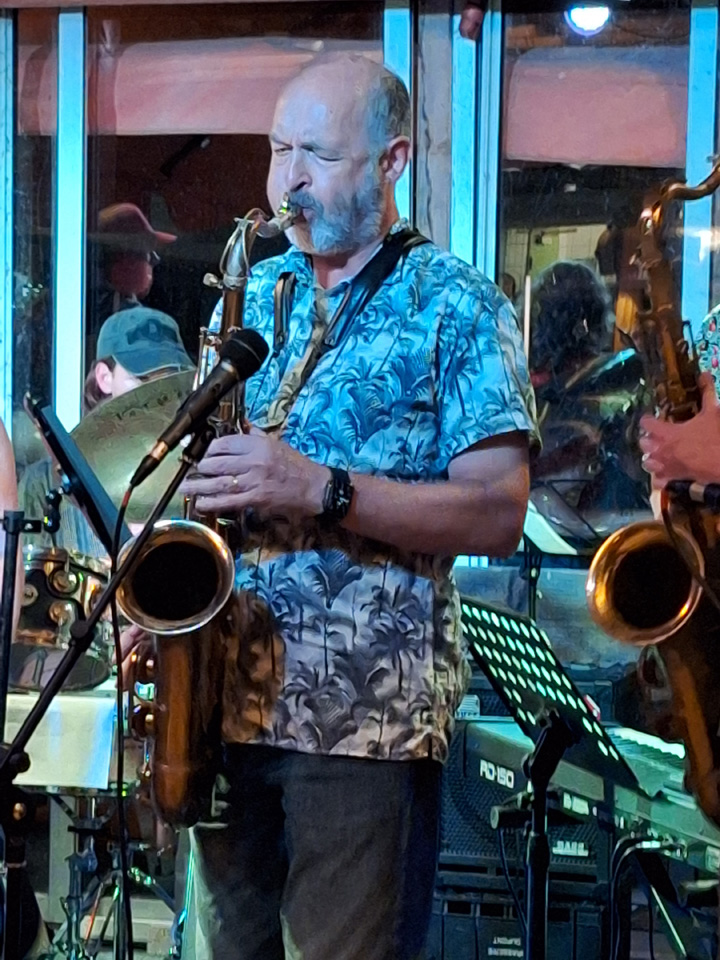
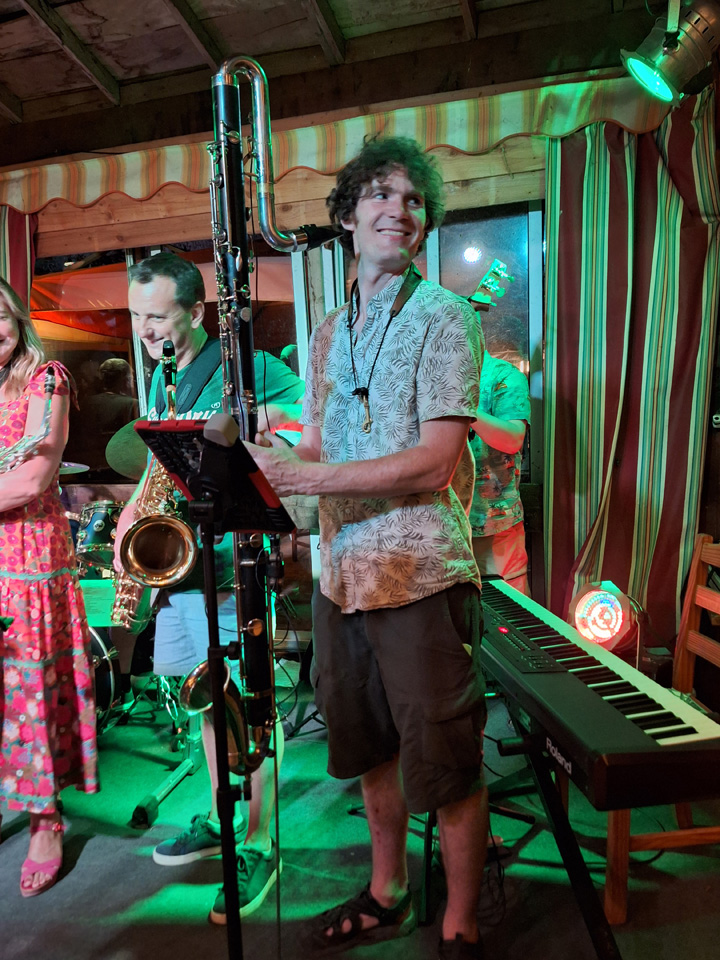
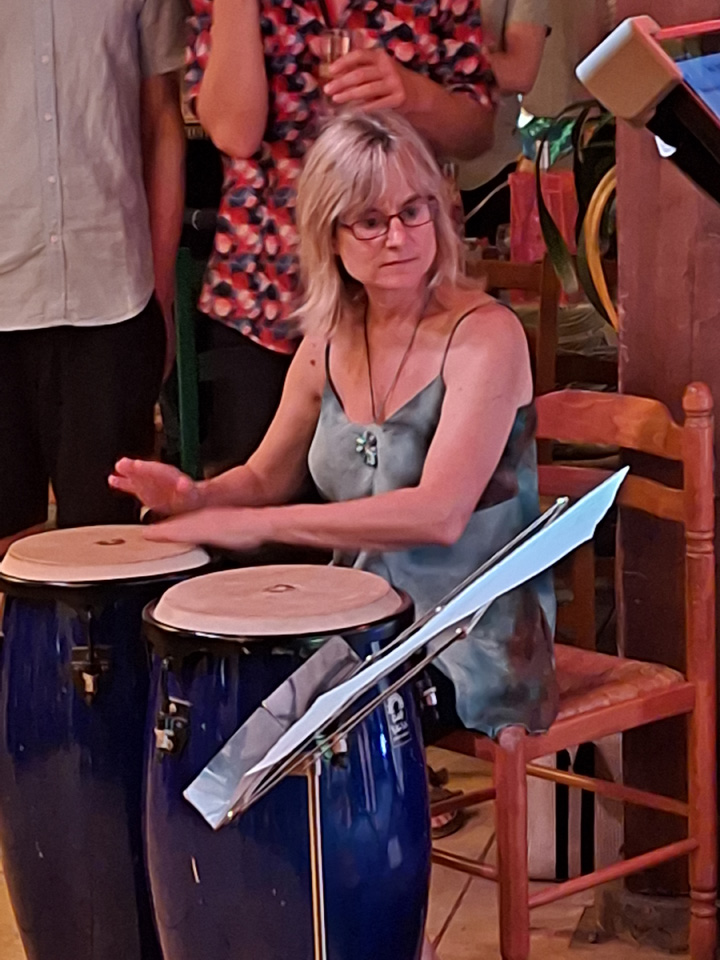
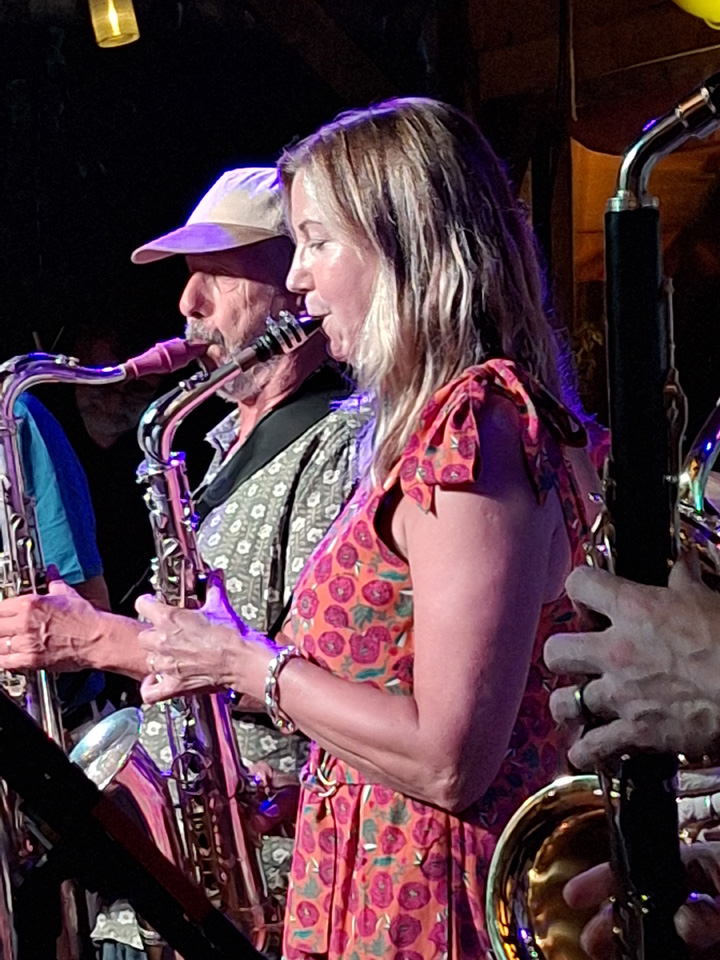
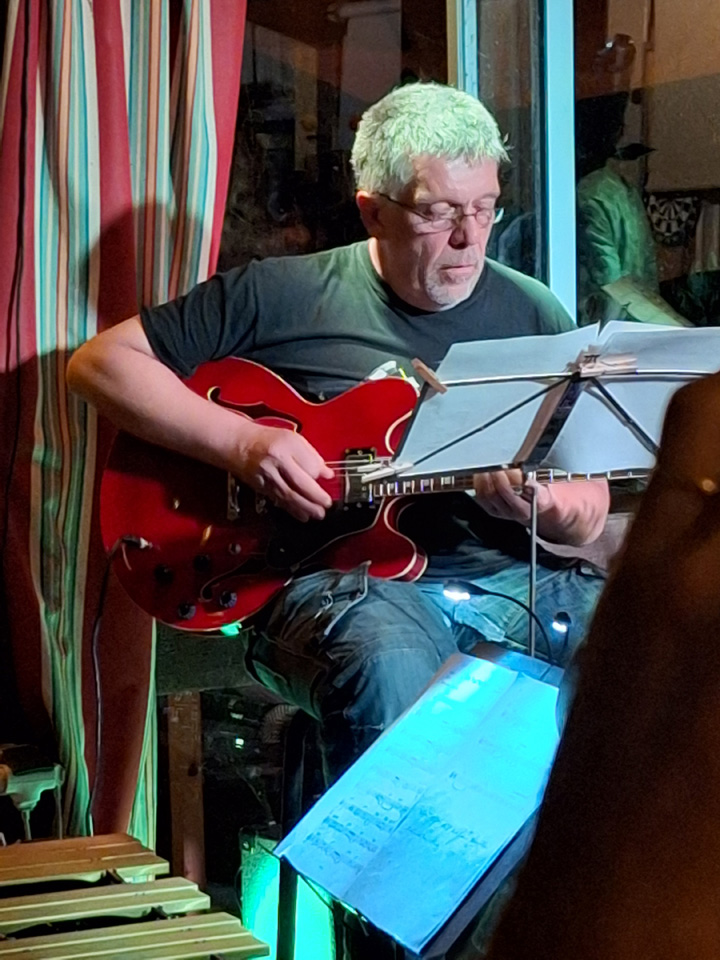
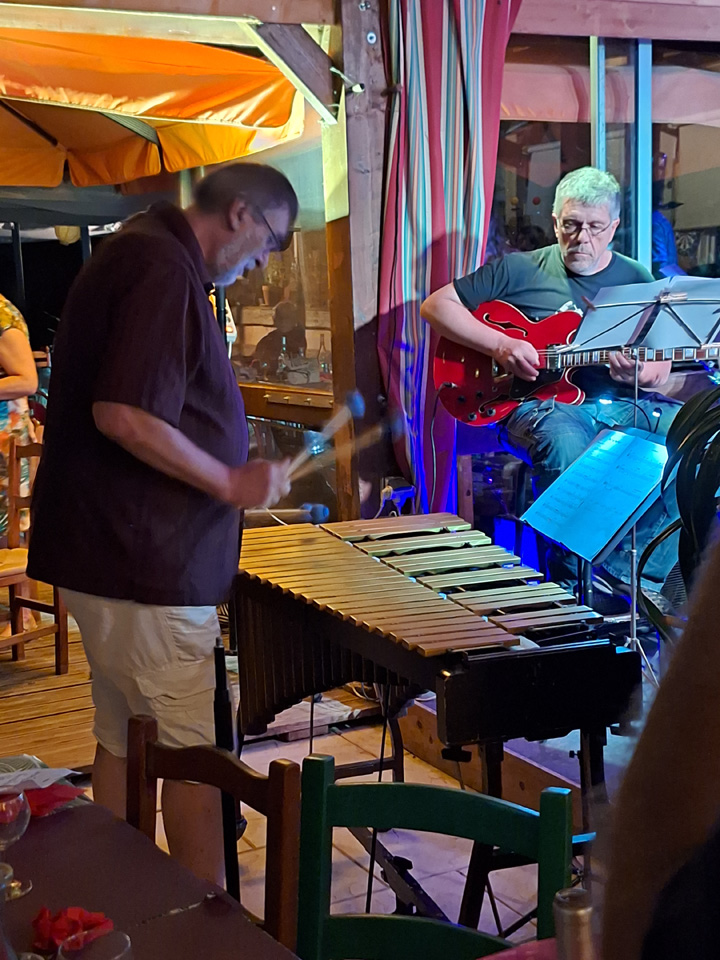
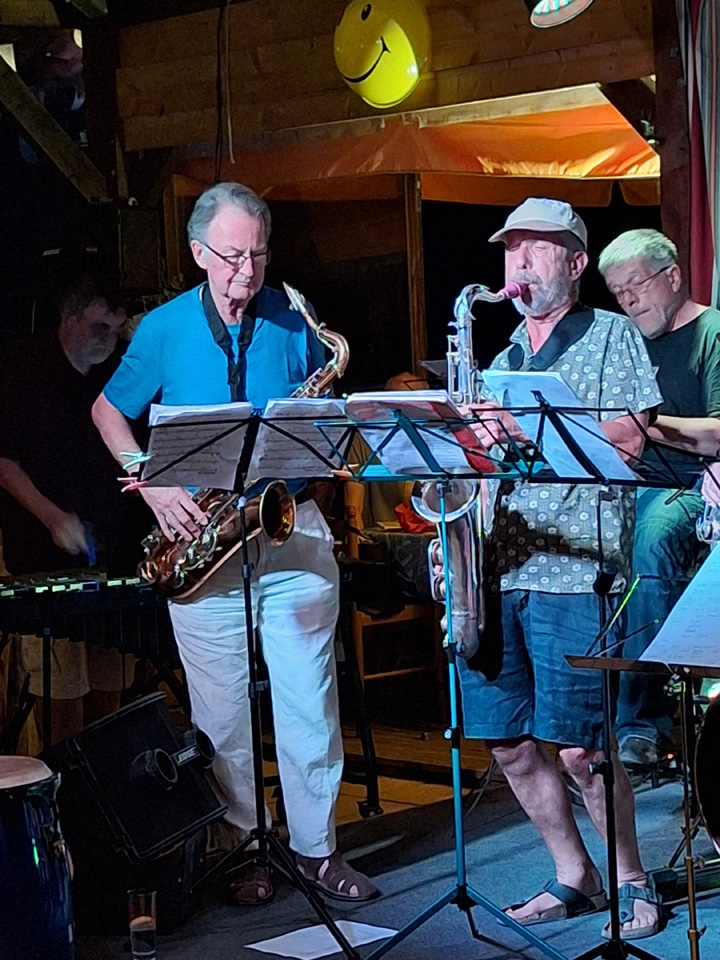
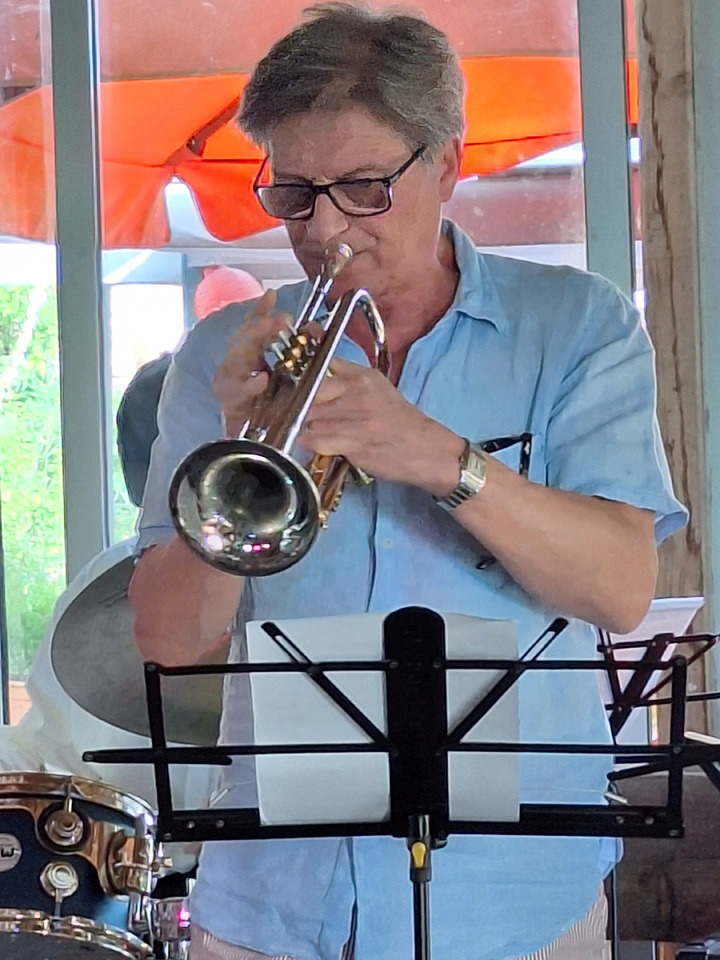
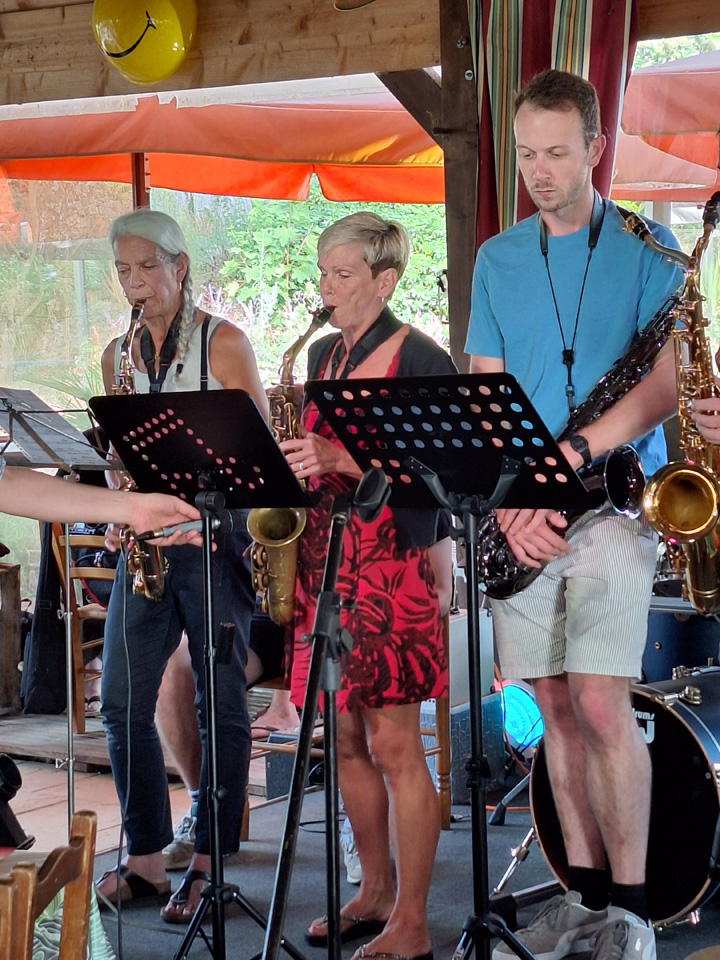
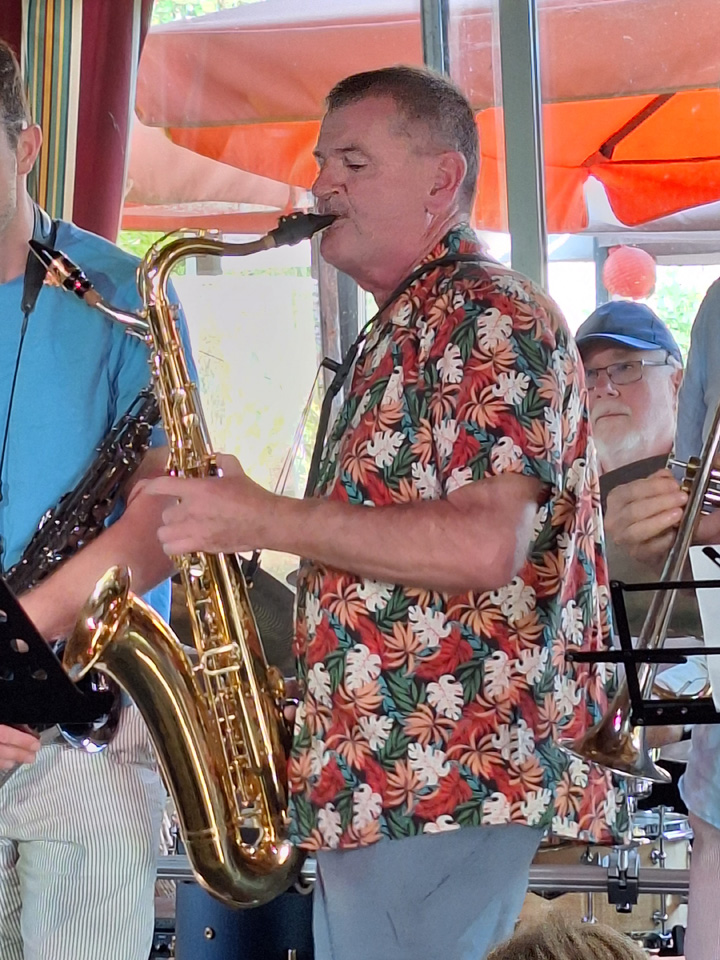
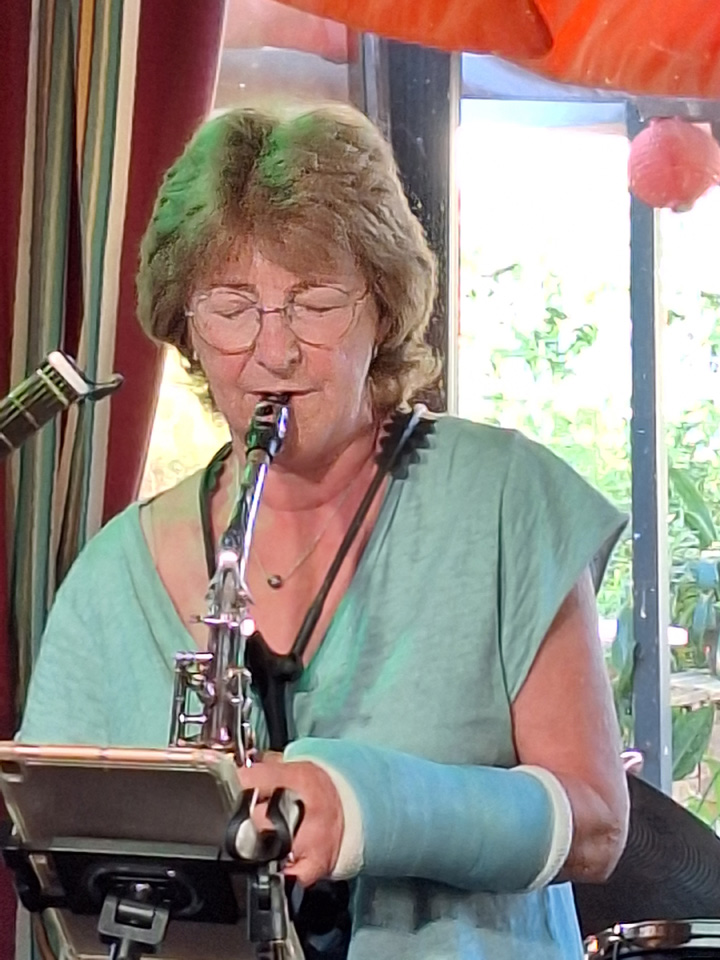
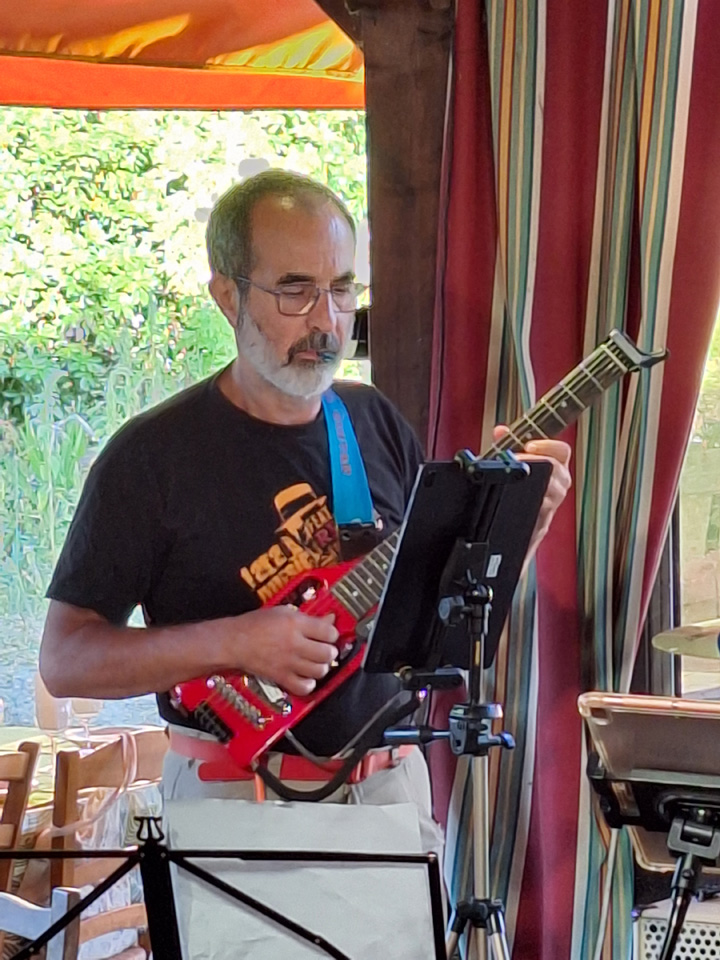
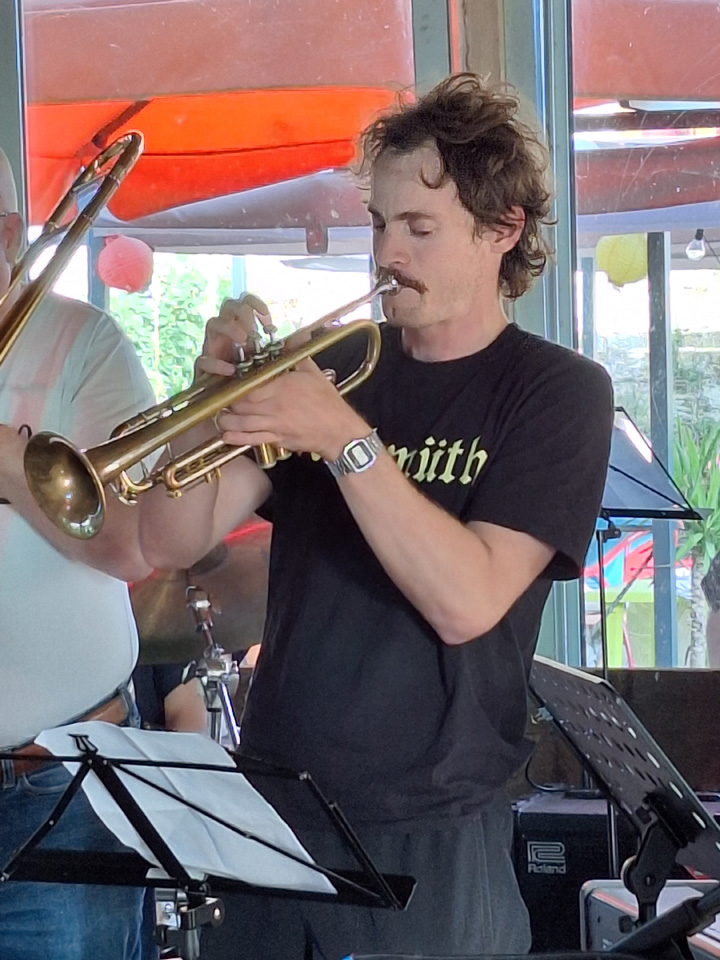
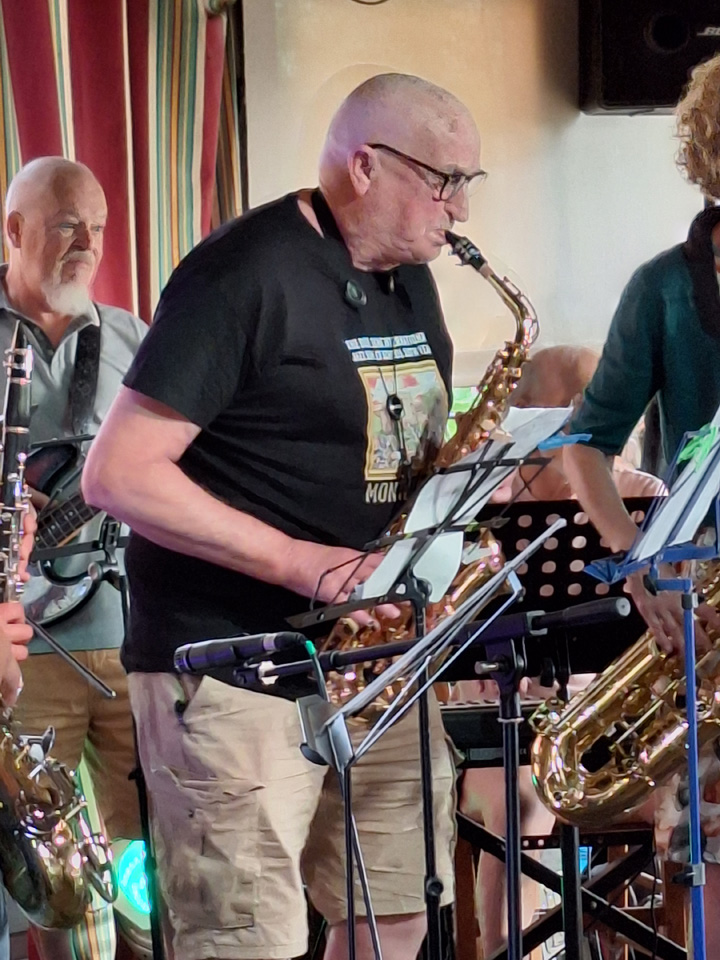
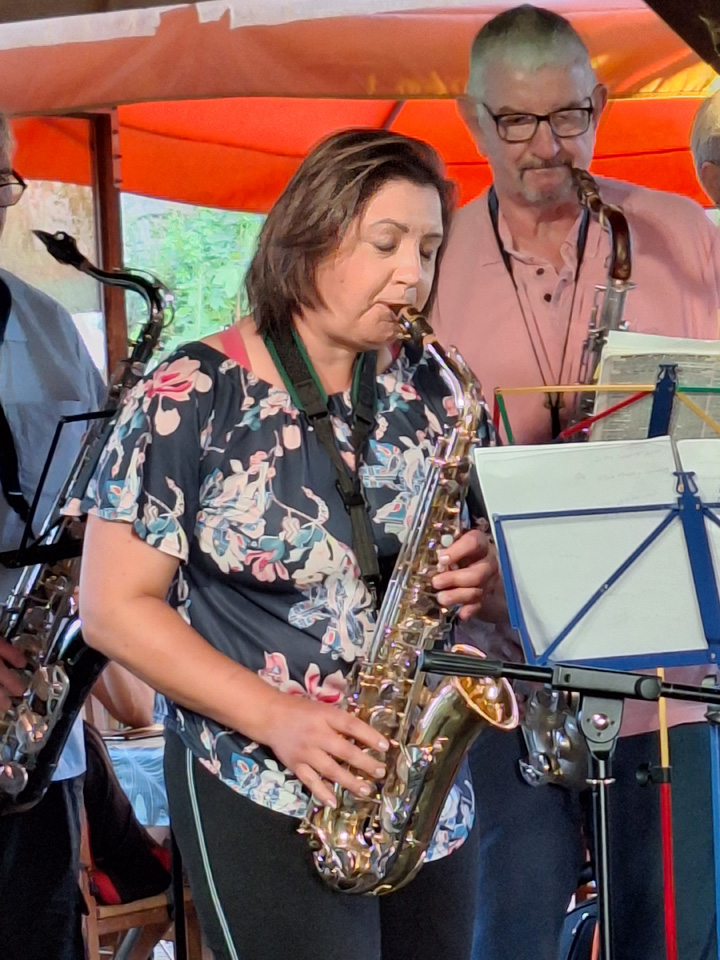
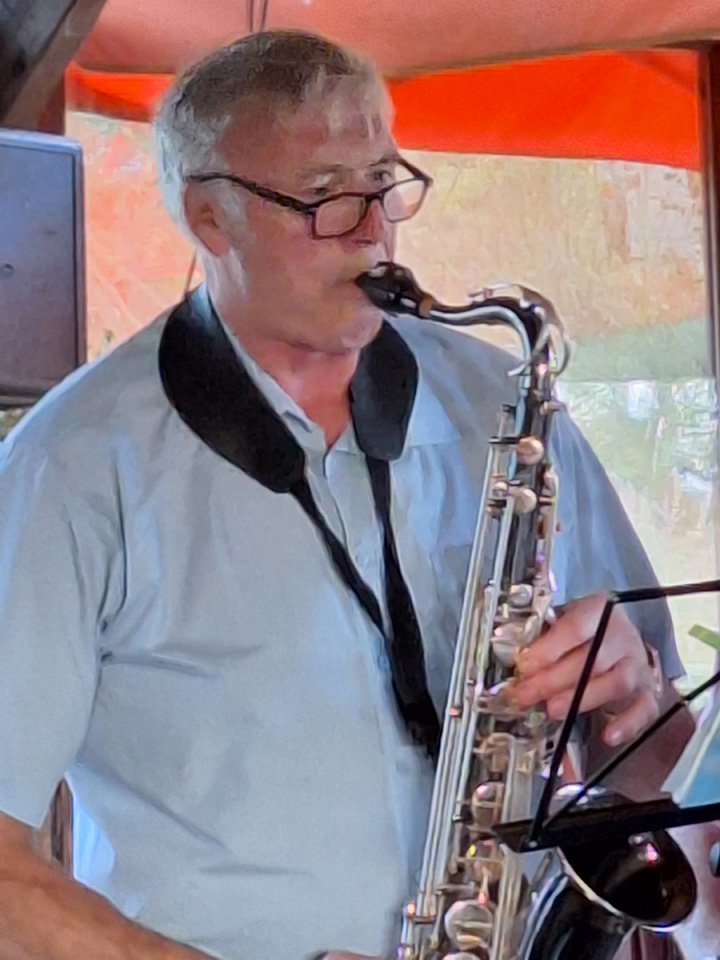
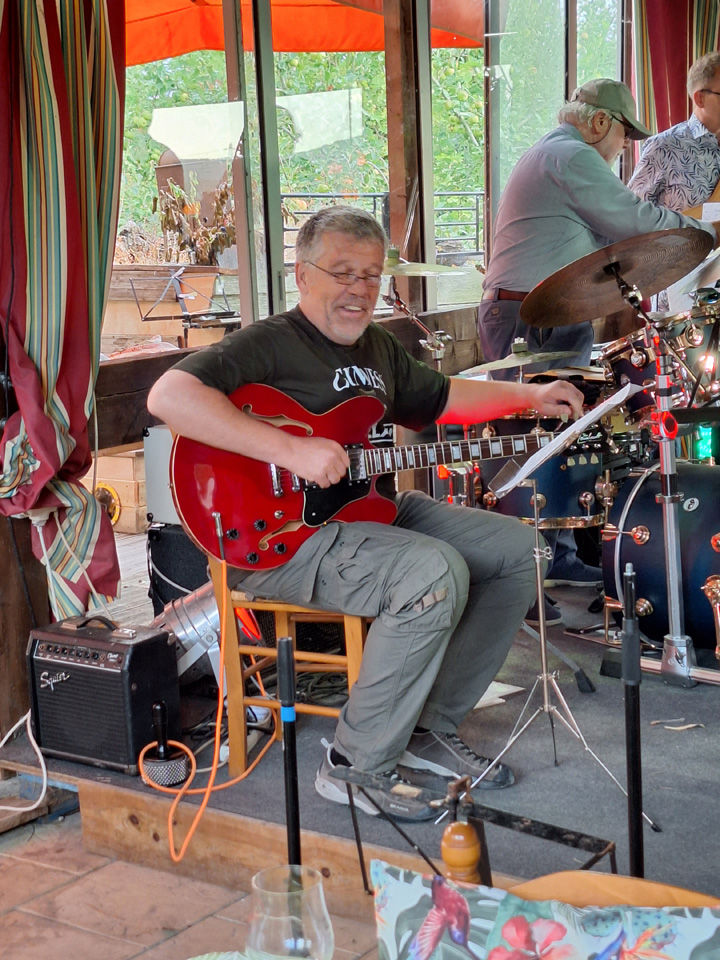
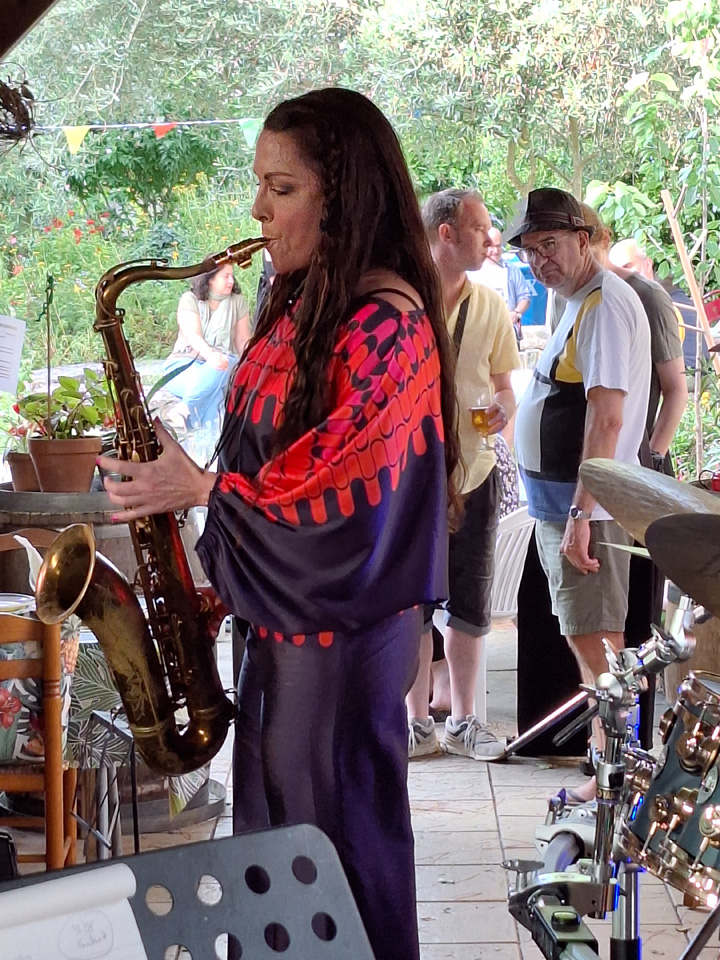
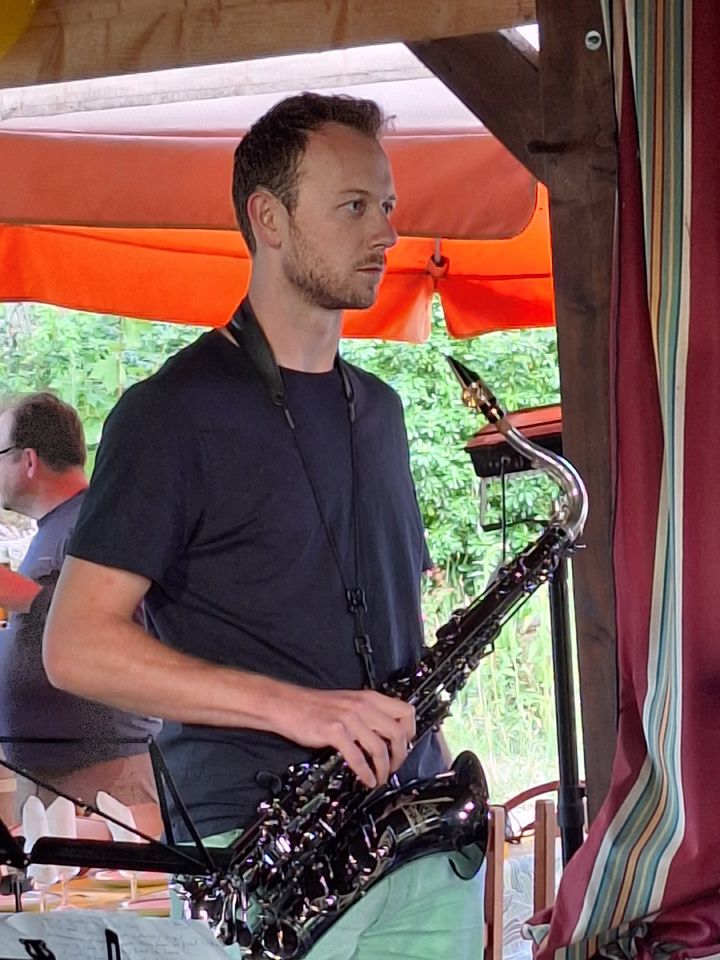
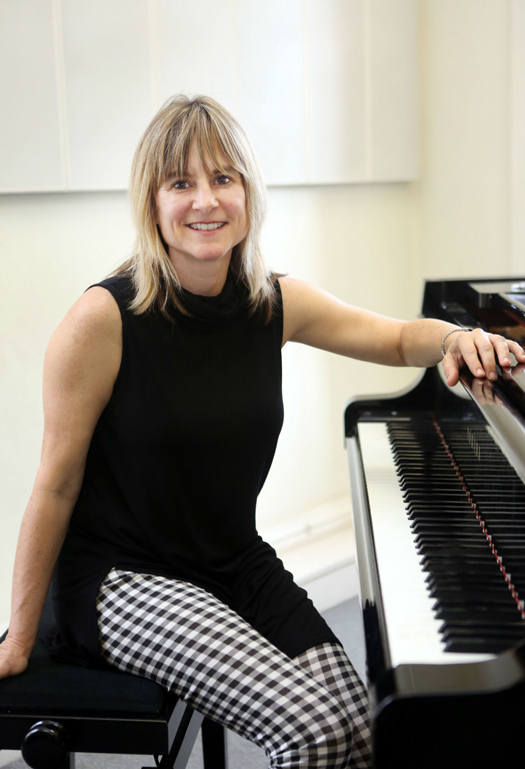
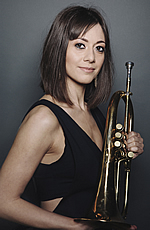
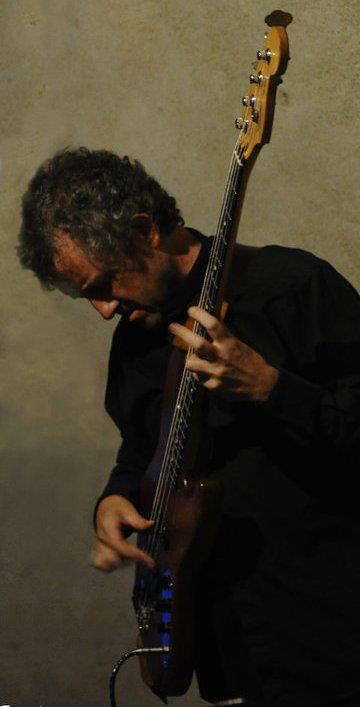
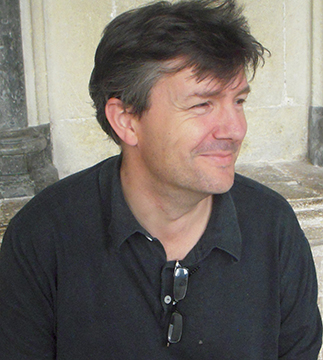
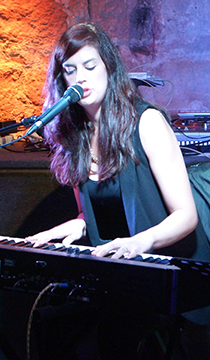
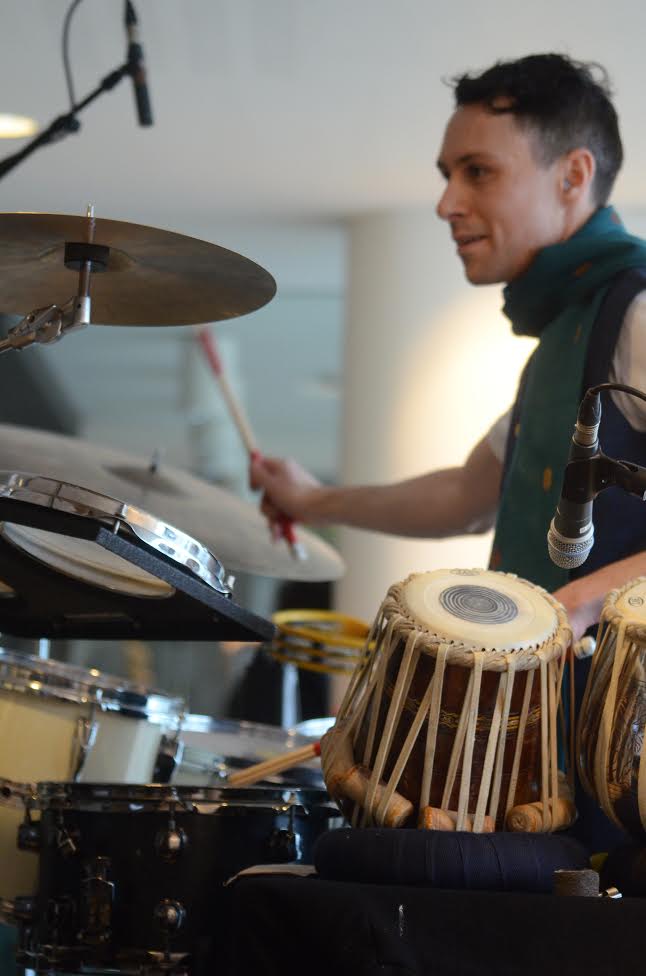
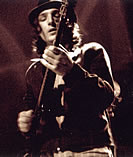
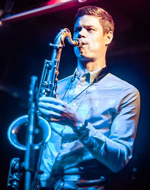
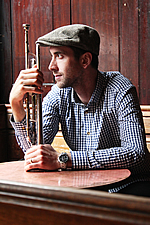
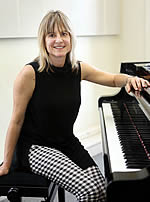

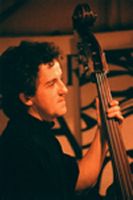
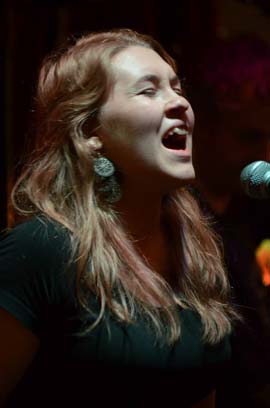
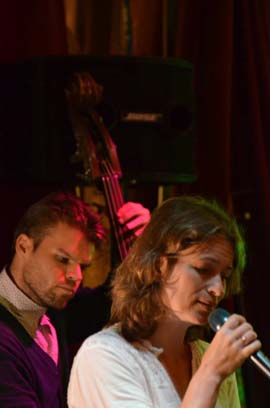
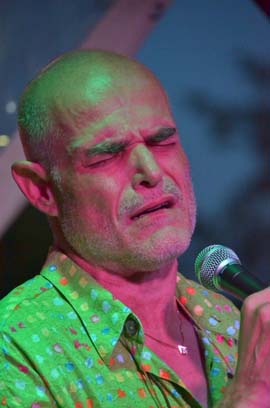
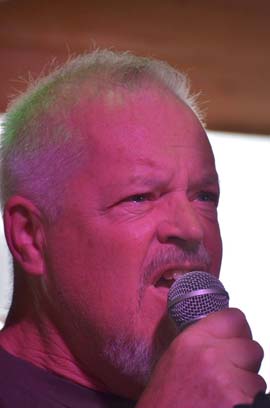
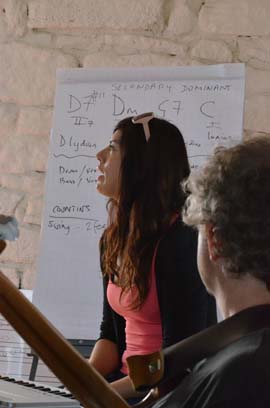
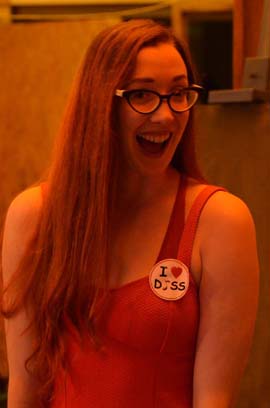
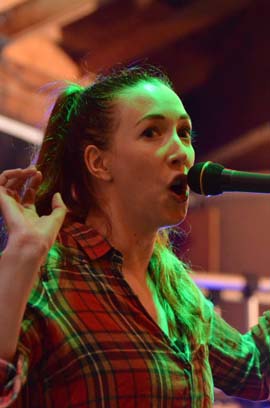
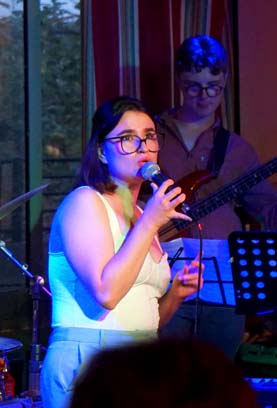
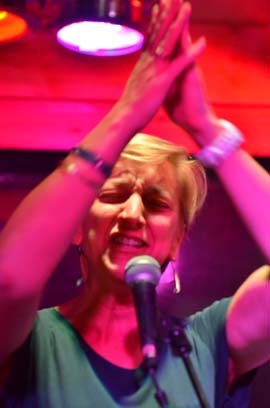
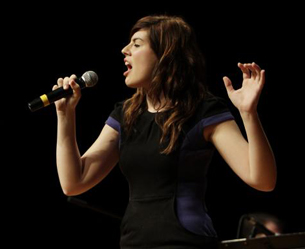
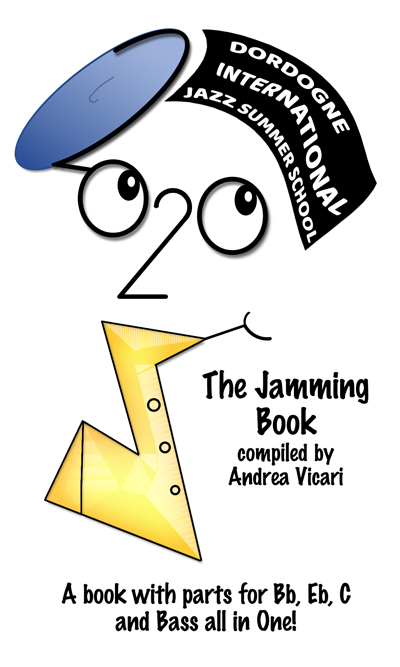
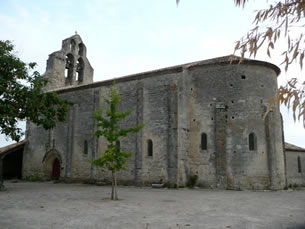
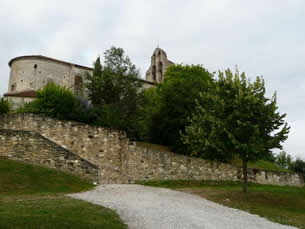
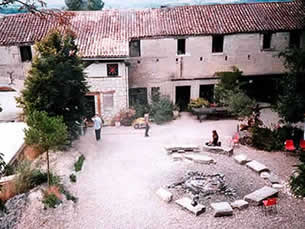
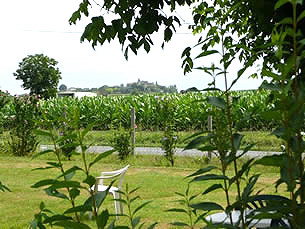
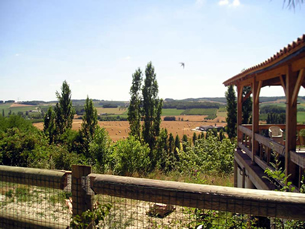
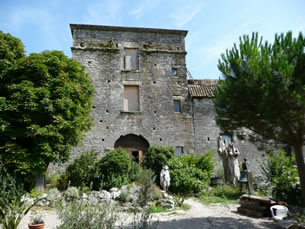
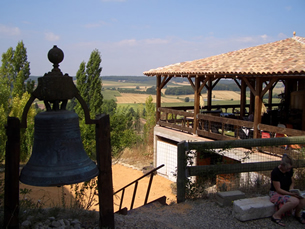
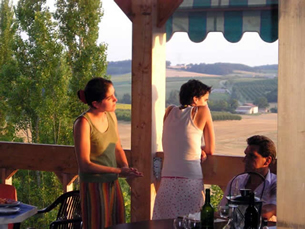
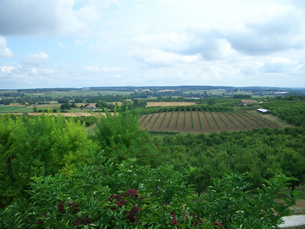
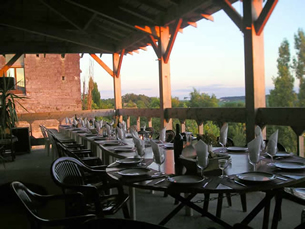
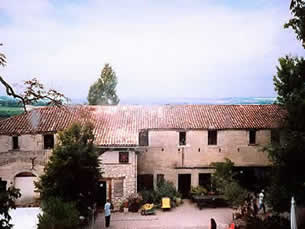
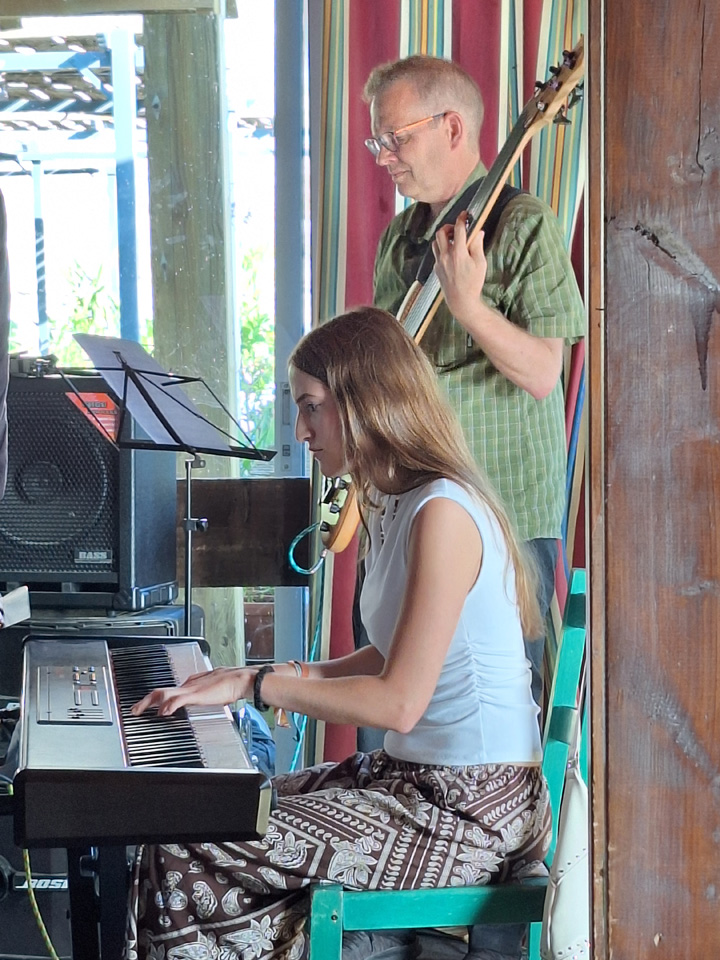
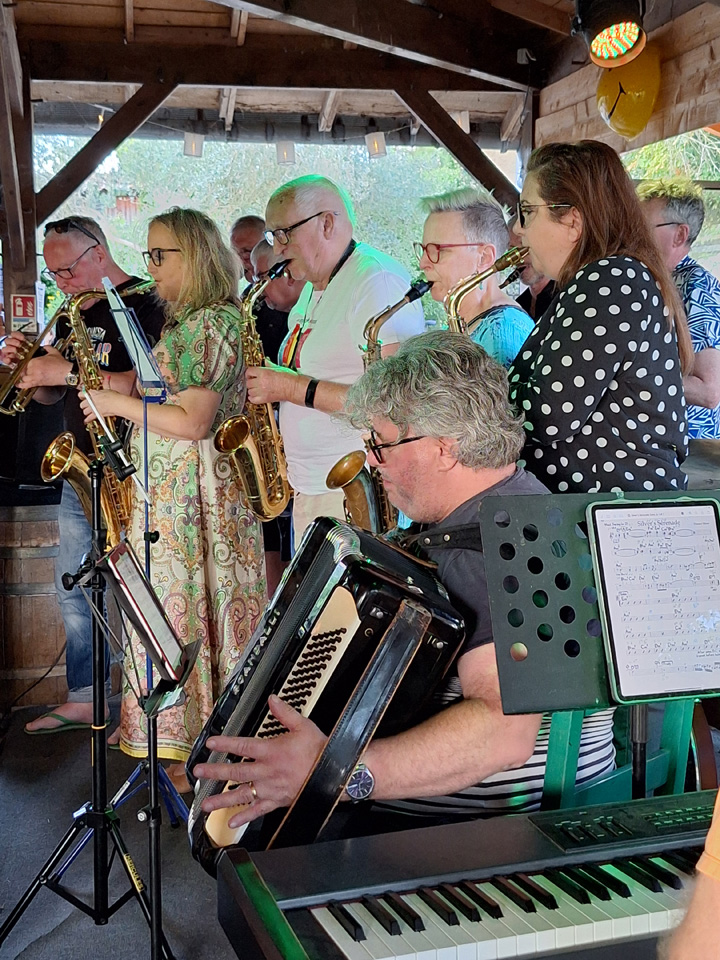
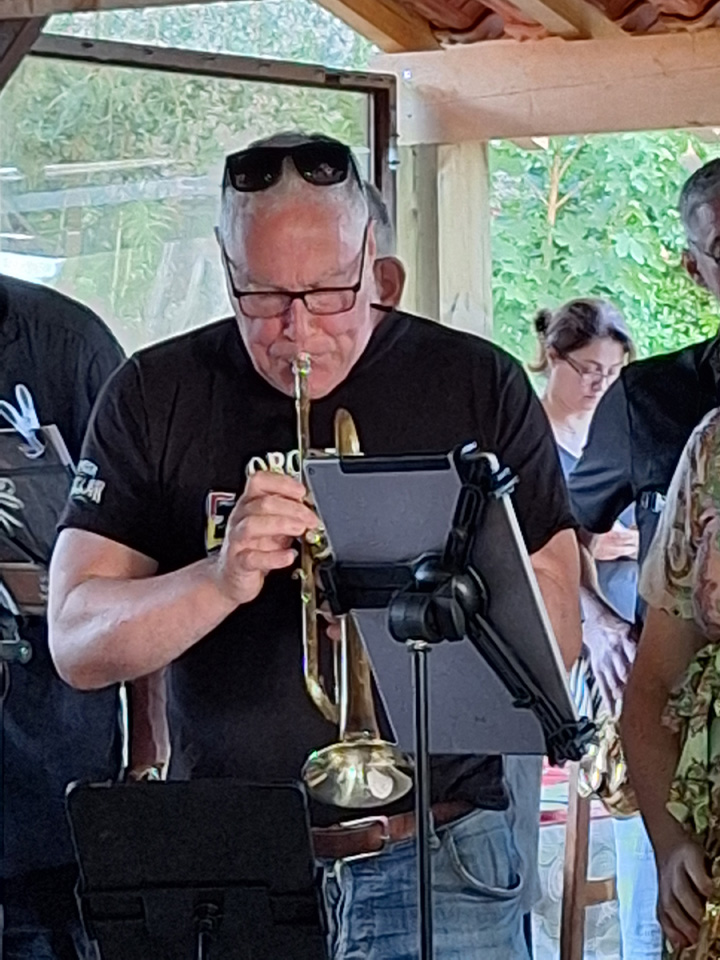
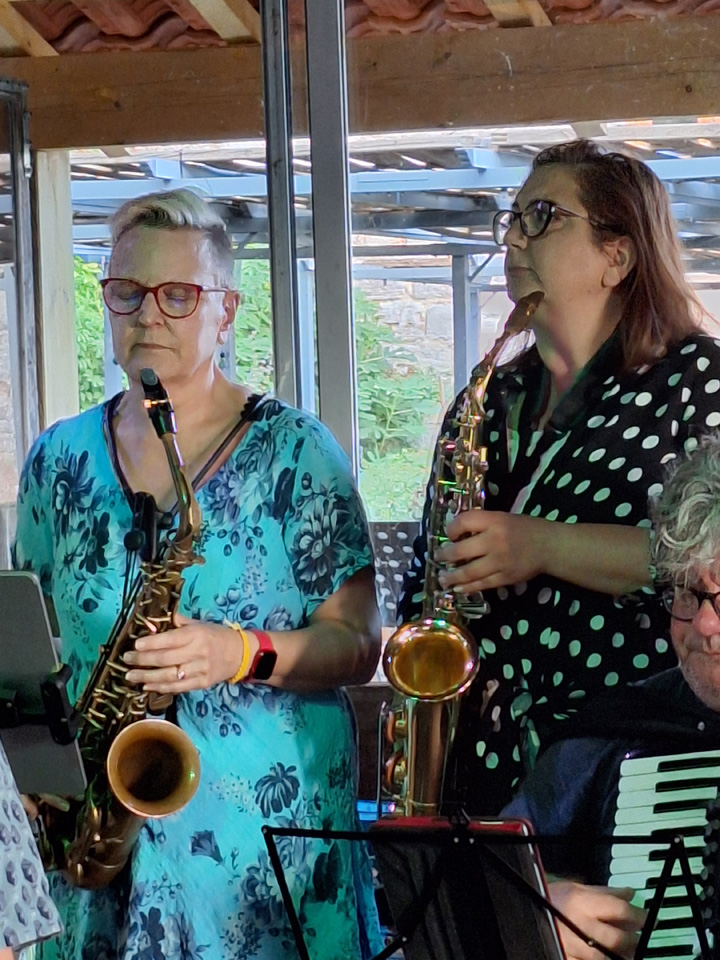
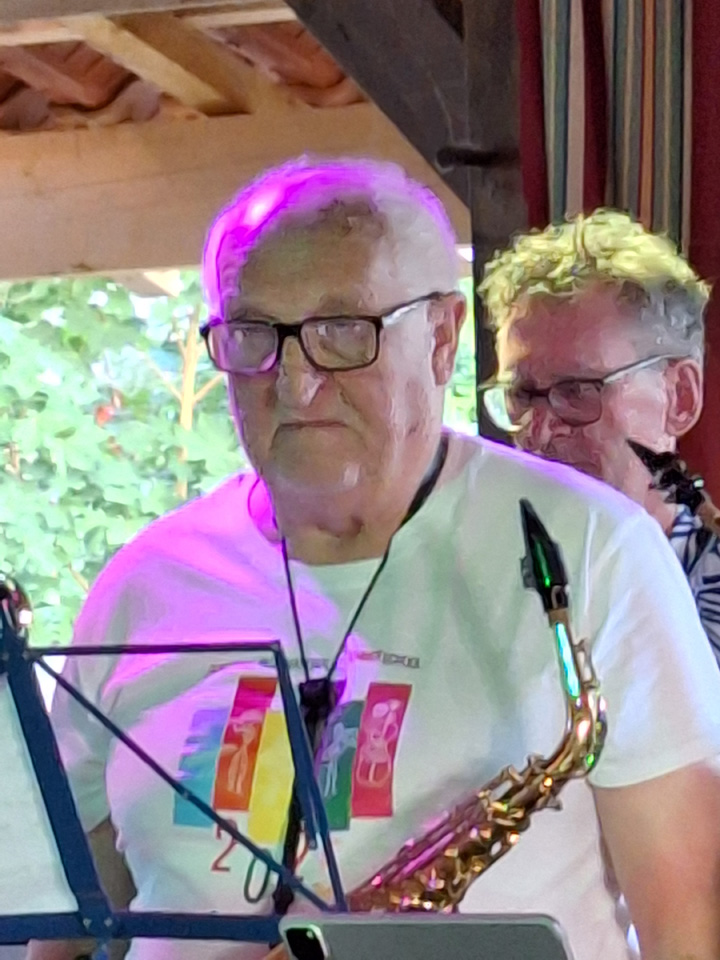
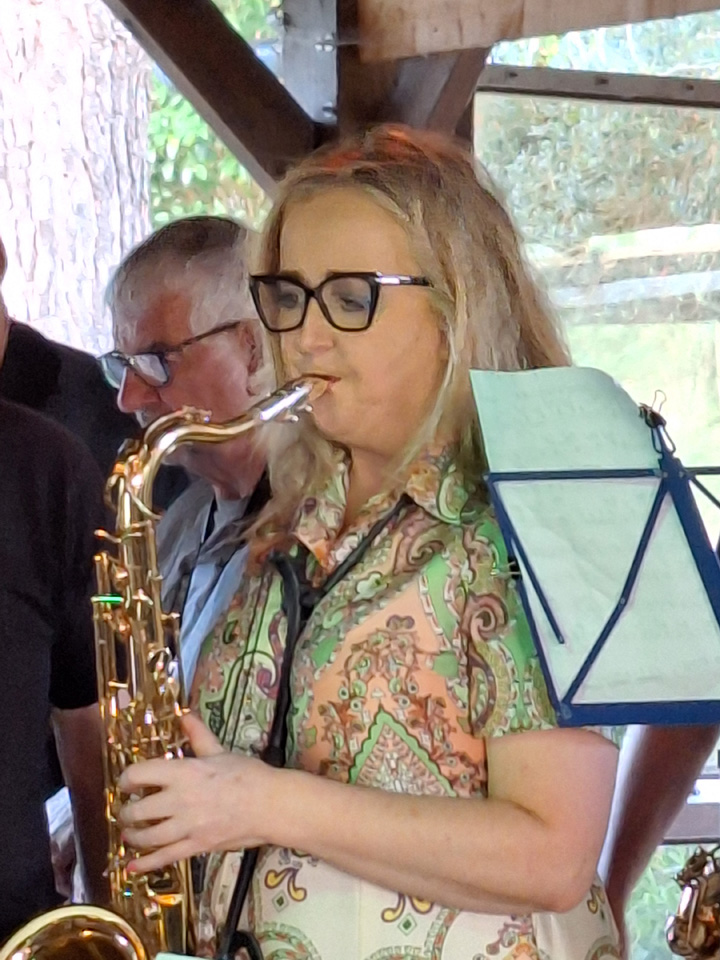
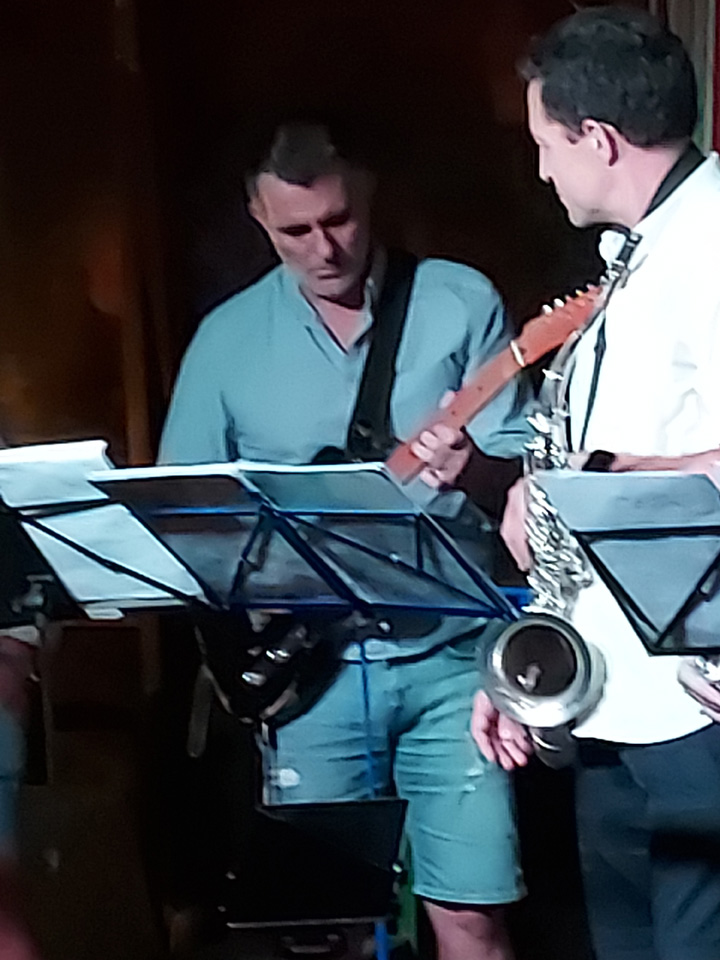
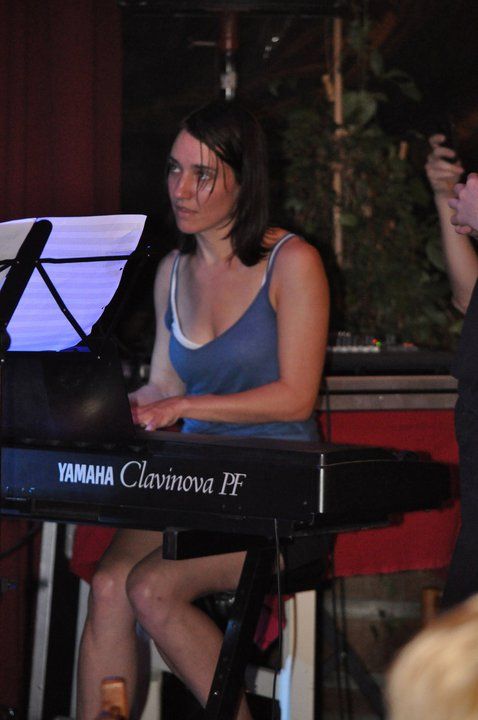
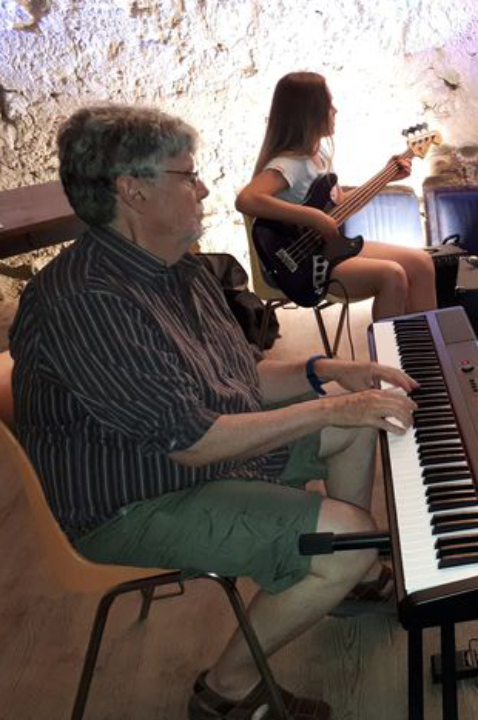
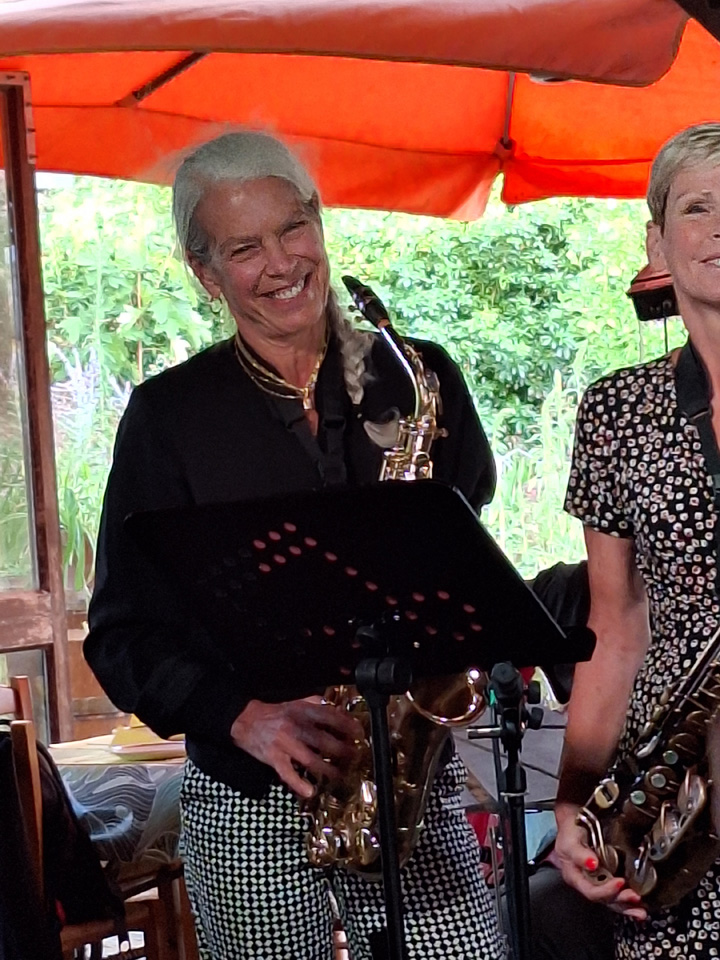
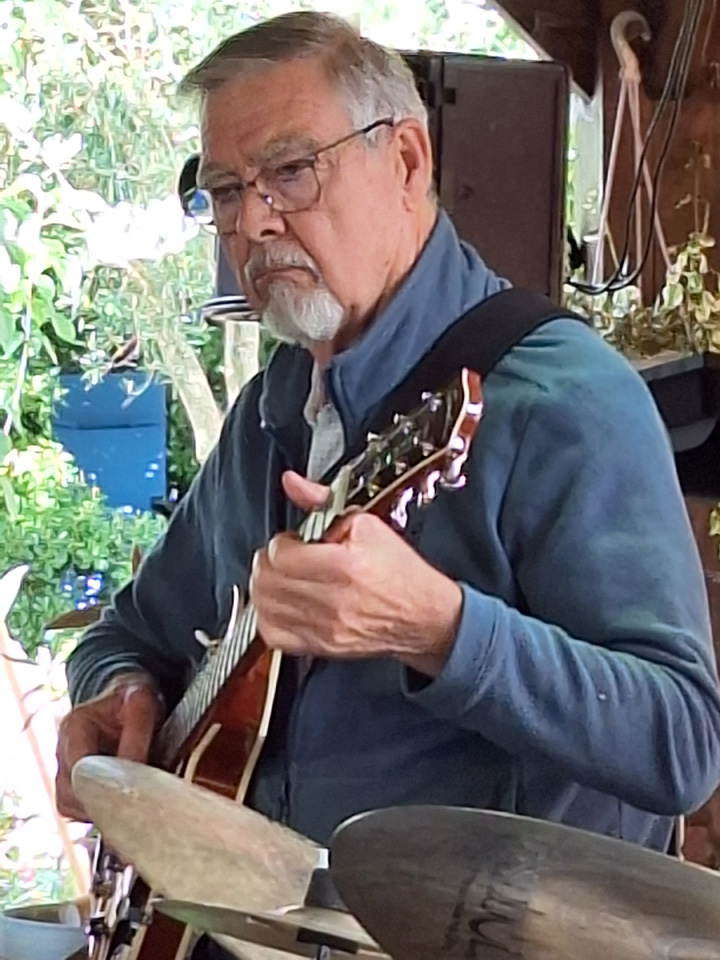
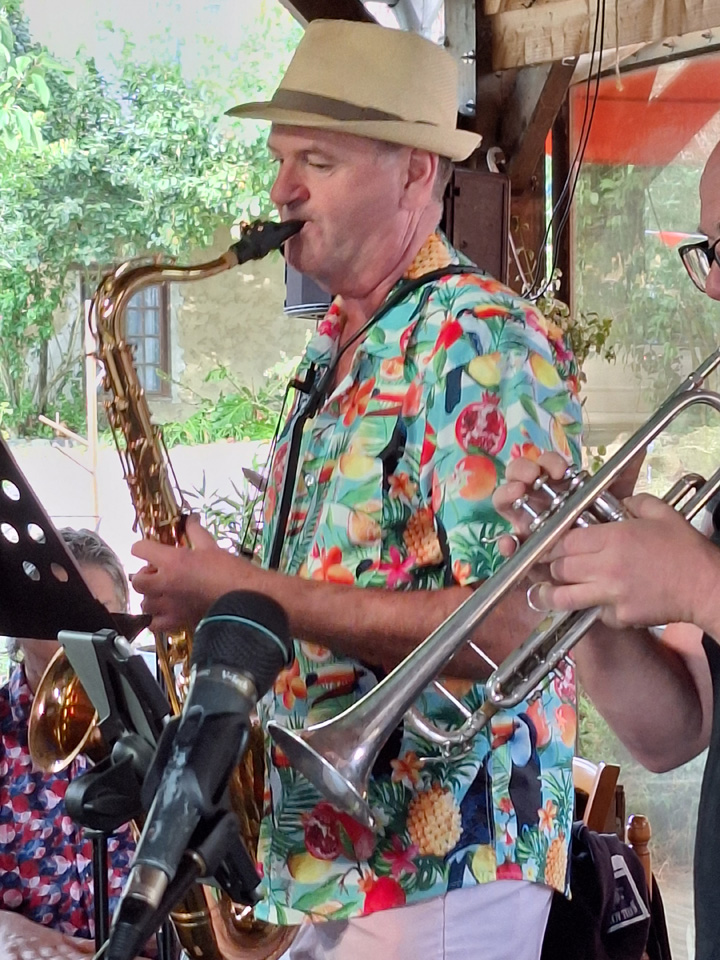
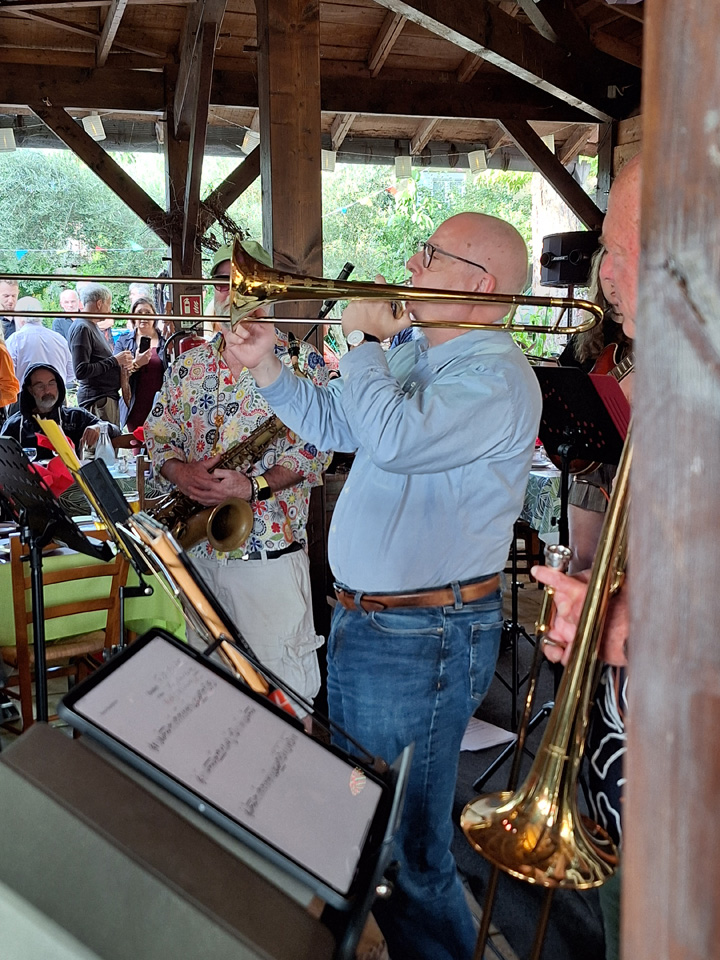
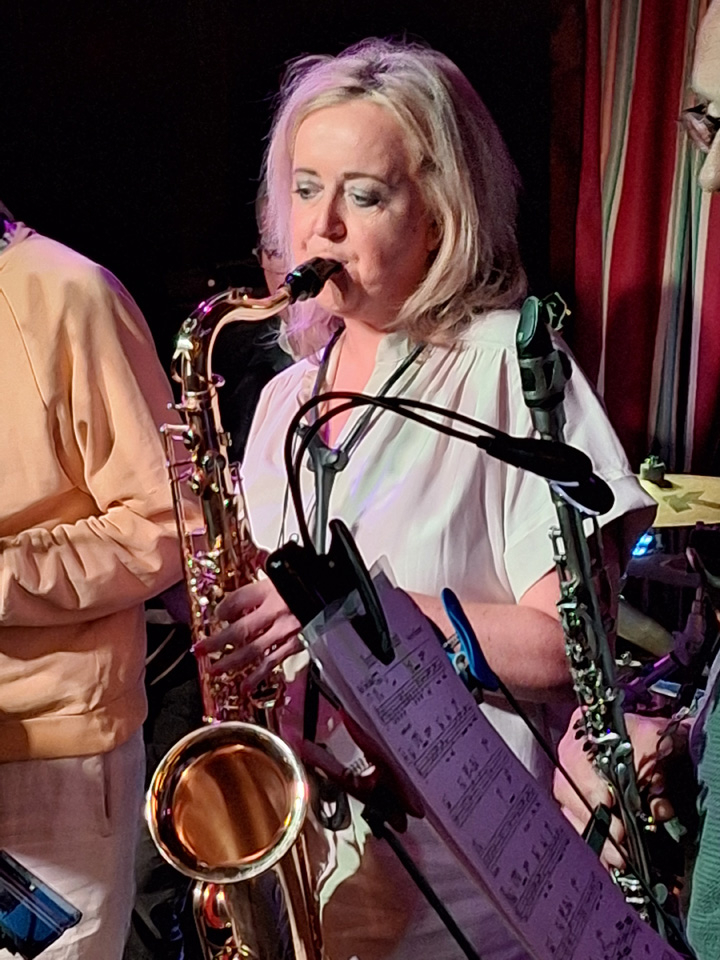
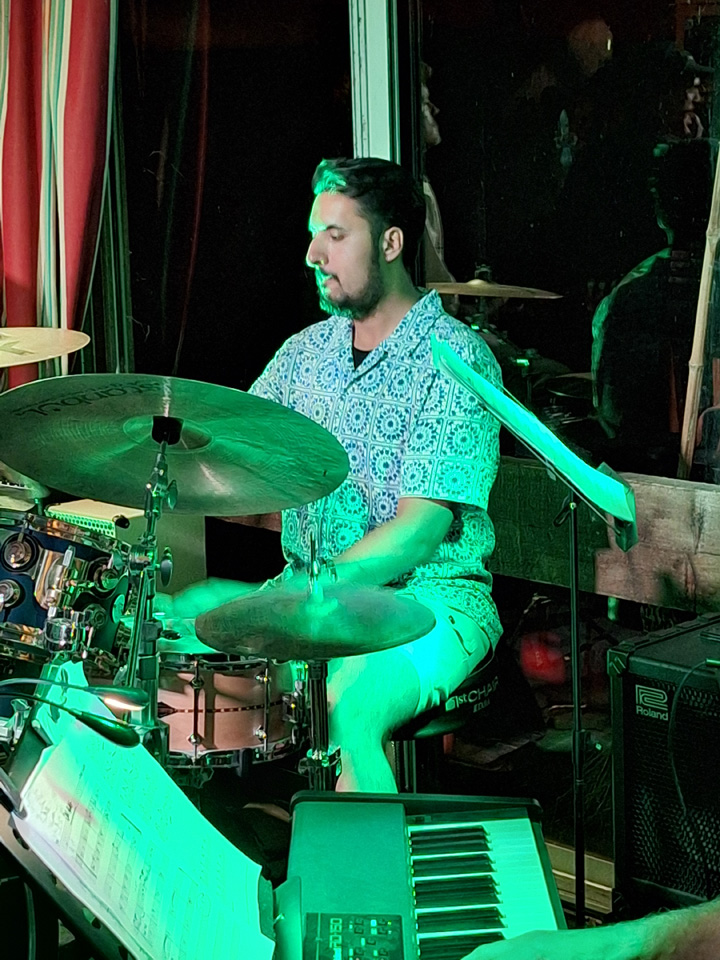
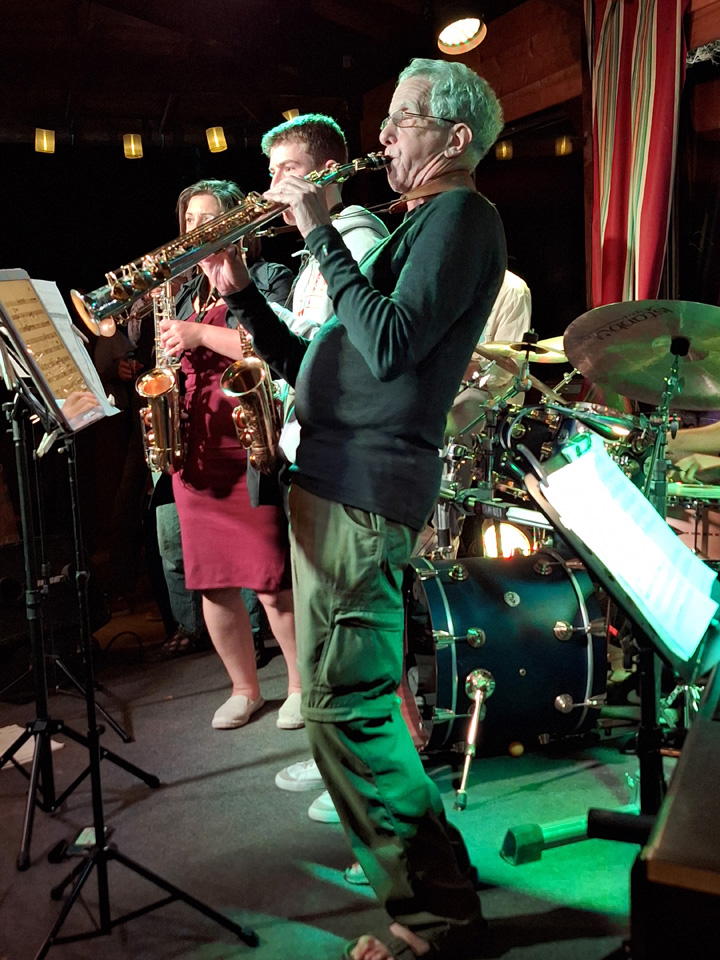
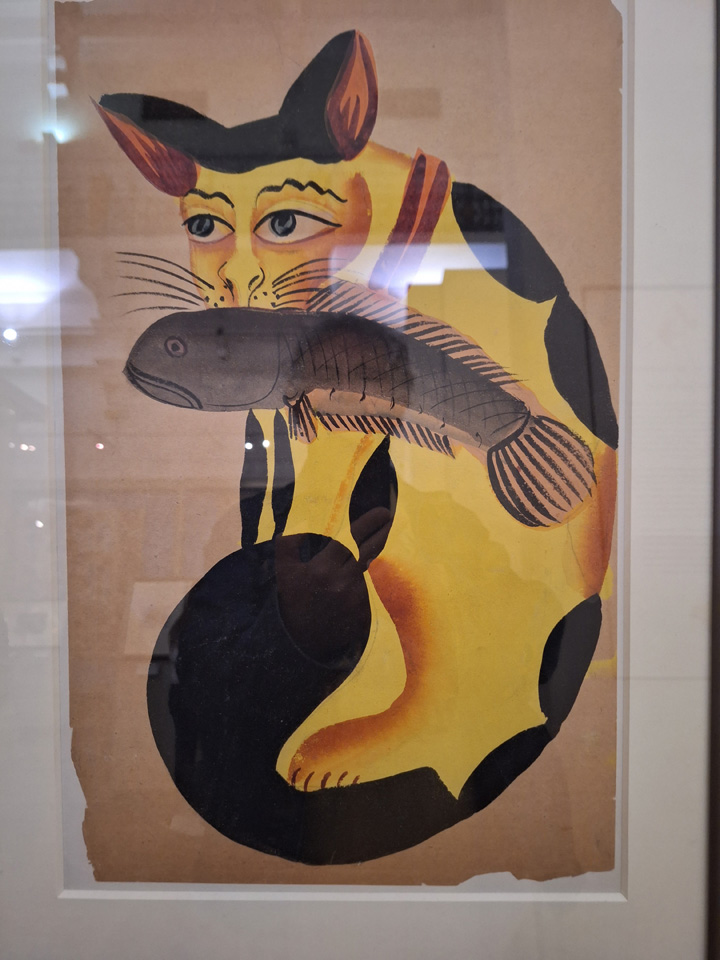
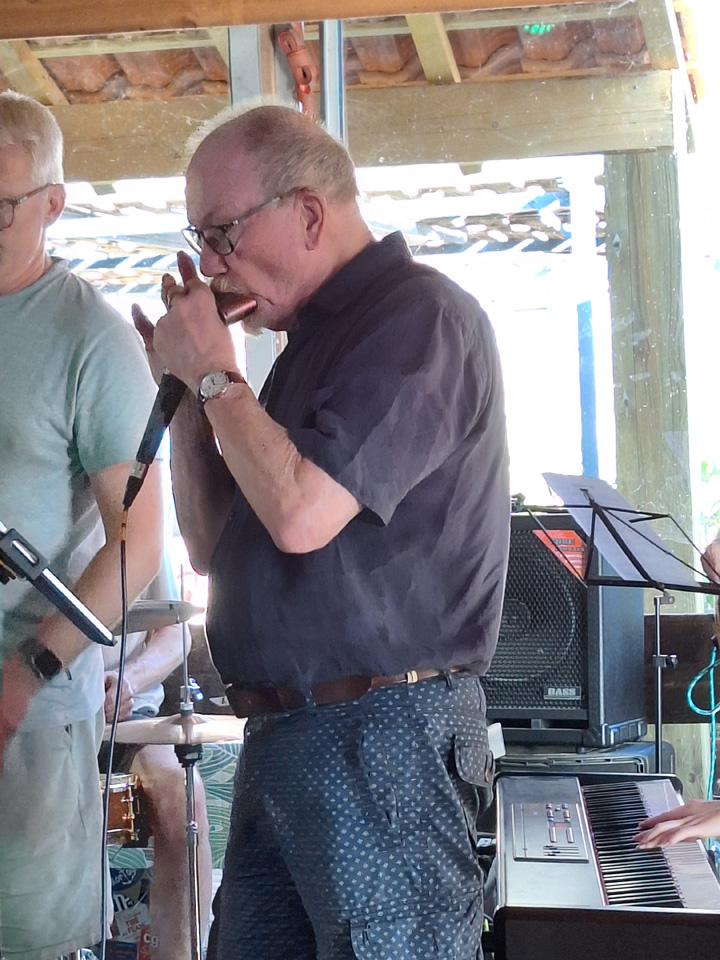
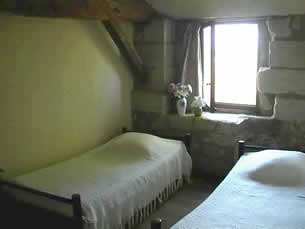
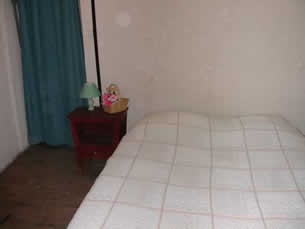
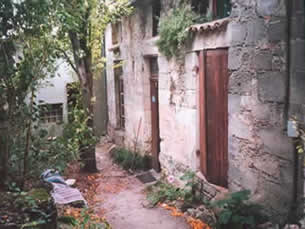
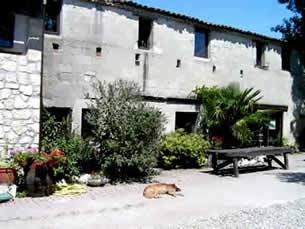
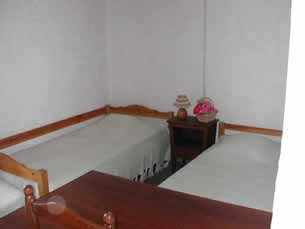
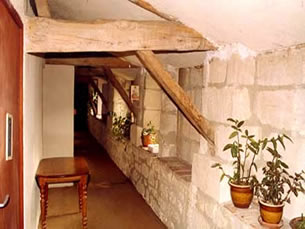
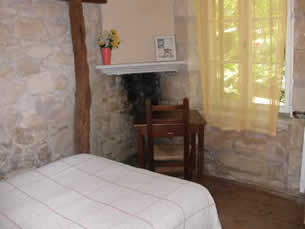
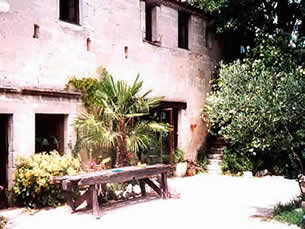
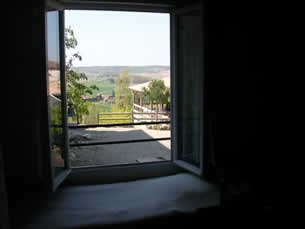
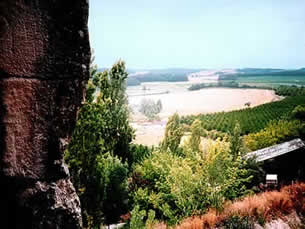
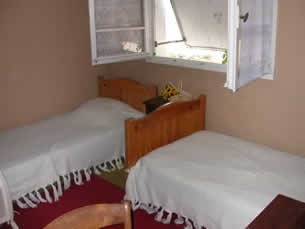
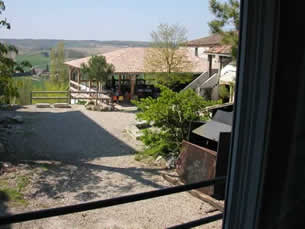
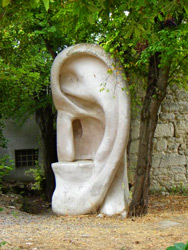
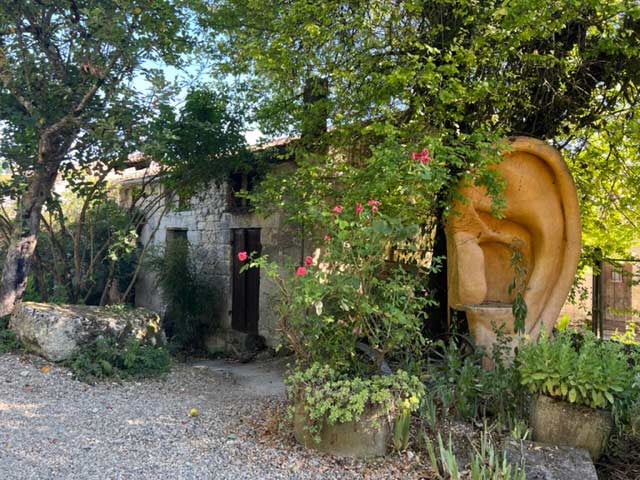
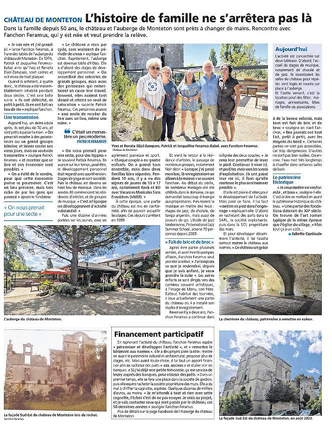
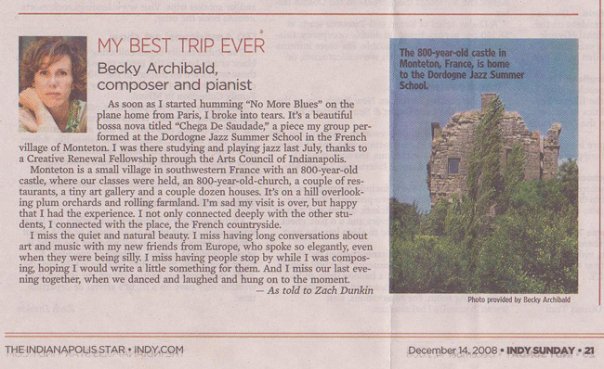 (It was especially
poignant, since earlier in the day he was rushed to the hospital
because of a fall, and didn'tknow if he would be able to use
his hand that evening.) I can hear Irene playing the simple
melody on her flute, and sweetly singing one of the verses.
I've been holding back the tears since Saturday, and they come
easily on the plane sitting by a stranger (a very kind one,
thankfully.) I'm sad it is over, but certainly happy that I
had the experience. I want to see everyone again. I not only
connected deeply with -rightthe other students at the workshop, I
connected with the place, with Montenon, with the French countryside.
I'll miss the owner's friendly face, his beautiful children
who worked behind the counter and played the dice game with
me, and Jean-Baptiste, the man who ran the art gallery nearby.
I'll miss the quietness, the natural beauty, the air, and having
our large windows wide open at night because of the lack of
bugs and humidity. I'll miss being served three splendid meals
a day, watching people saunter in one by one for morning coffee
and cereal, having long conversations about art and music and
anything except what we actually did for a living, and taking
everything at a slow place. I'll miss being with my new friends
from England, Scotland, Ireland, Norway, Austria and France,
who speak so elegantly, even when they are talking about silly
things. I'll miss having people check in on me late at night
while I'm trying to compose music, asking me how it's going,
wanting to hear a few bars, encouraging me to finish, offering
advice on chord changes and titles and styles I should write
in and hoping I'll write a little something for their instrument.
And I will miss our last evening together, after the concert,
when we relaxed and danced to salsa music and laughed and hung
on to the moment.
(It was especially
poignant, since earlier in the day he was rushed to the hospital
because of a fall, and didn'tknow if he would be able to use
his hand that evening.) I can hear Irene playing the simple
melody on her flute, and sweetly singing one of the verses.
I've been holding back the tears since Saturday, and they come
easily on the plane sitting by a stranger (a very kind one,
thankfully.) I'm sad it is over, but certainly happy that I
had the experience. I want to see everyone again. I not only
connected deeply with -rightthe other students at the workshop, I
connected with the place, with Montenon, with the French countryside.
I'll miss the owner's friendly face, his beautiful children
who worked behind the counter and played the dice game with
me, and Jean-Baptiste, the man who ran the art gallery nearby.
I'll miss the quietness, the natural beauty, the air, and having
our large windows wide open at night because of the lack of
bugs and humidity. I'll miss being served three splendid meals
a day, watching people saunter in one by one for morning coffee
and cereal, having long conversations about art and music and
anything except what we actually did for a living, and taking
everything at a slow place. I'll miss being with my new friends
from England, Scotland, Ireland, Norway, Austria and France,
who speak so elegantly, even when they are talking about silly
things. I'll miss having people check in on me late at night
while I'm trying to compose music, asking me how it's going,
wanting to hear a few bars, encouraging me to finish, offering
advice on chord changes and titles and styles I should write
in and hoping I'll write a little something for their instrument.
And I will miss our last evening together, after the concert,
when we relaxed and danced to salsa music and laughed and hung
on to the moment. The trip there was not fun. My flight left Ben-Gurion airport
after midnight on Sunday, July 30 and, I arrived in Charles
De Gaulle airport with an hour or so to get to the Air France
window and get a boarding pass for the connecting flight to
Bordeaux. The line was so long and slow moving that I almost
missed the plane. To top things off, when I got to Bordeaux,
I found that Air France had abandoned my suitcase in Paris.
The trip there was not fun. My flight left Ben-Gurion airport
after midnight on Sunday, July 30 and, I arrived in Charles
De Gaulle airport with an hour or so to get to the Air France
window and get a boarding pass for the connecting flight to
Bordeaux. The line was so long and slow moving that I almost
missed the plane. To top things off, when I got to Bordeaux,
I found that Air France had abandoned my suitcase in Paris.


 The jazz summer school had four main teachers: two saxophone
players, Julian Siegel and Ingrid Laubrock; one trumpeter, Chris
Batchelor; and one guitarist, Phil Robson. Andrea worked with
the pianists. They are all fine musicians and excellent teachers.
Chris was especially articulate, and, since he directed the
Salsa band, I was exposed to him a lot. Julian was the first
teacher I was exposed to, in a workshop for the advanced saxophone
players (it was up to us to decide what level was right for
us). He's a tall man with a soft face and a lot of black hair.
He speaks quietly, almost bashfully, and in his class he emphasized
sound production in the lower register of the horn: the most
basic stuff is also the most advanced. That afternoon he also
led my workshop group and taught us the song "Sweet Georgia
Bright" by ear, going over it patiently, phrase by phrase,
chord by chord, till we'd got it. Like all the other teachers,
he was terrifically encouraging, telling us we were doing great
all the time.
The jazz summer school had four main teachers: two saxophone
players, Julian Siegel and Ingrid Laubrock; one trumpeter, Chris
Batchelor; and one guitarist, Phil Robson. Andrea worked with
the pianists. They are all fine musicians and excellent teachers.
Chris was especially articulate, and, since he directed the
Salsa band, I was exposed to him a lot. Julian was the first
teacher I was exposed to, in a workshop for the advanced saxophone
players (it was up to us to decide what level was right for
us). He's a tall man with a soft face and a lot of black hair.
He speaks quietly, almost bashfully, and in his class he emphasized
sound production in the lower register of the horn: the most
basic stuff is also the most advanced. That afternoon he also
led my workshop group and taught us the song "Sweet Georgia
Bright" by ear, going over it patiently, phrase by phrase,
chord by chord, till we'd got it. Like all the other teachers,
he was terrifically encouraging, telling us we were doing great
all the time. Chris Batchelor, a strong and imaginative trumpet player and
a very articulate teacher, addressed a lot of the musical issues
that concern me at the moment in a way that I could grasp immediately. He led our workshop group the next day and taught us a simple,
amusing New Orleans inspired Bill Frisell piece called "In
Deep," also by ear. He also gave a master class demonstration
that day, about breaking out of the patterns of jazz standards
by changing phrasing, by playing the chord progressions out
of phase, and other fairly technical matters. That mainly drove
home for me how firmly you have to have a piece in your mind,
in order to improvise against the structure and not confuse
yourself.
Chris Batchelor, a strong and imaginative trumpet player and
a very articulate teacher, addressed a lot of the musical issues
that concern me at the moment in a way that I could grasp immediately. He led our workshop group the next day and taught us a simple,
amusing New Orleans inspired Bill Frisell piece called "In
Deep," also by ear. He also gave a master class demonstration
that day, about breaking out of the patterns of jazz standards
by changing phrasing, by playing the chord progressions out
of phase, and other fairly technical matters. That mainly drove
home for me how firmly you have to have a piece in your mind,
in order to improvise against the structure and not confuse
yourself.